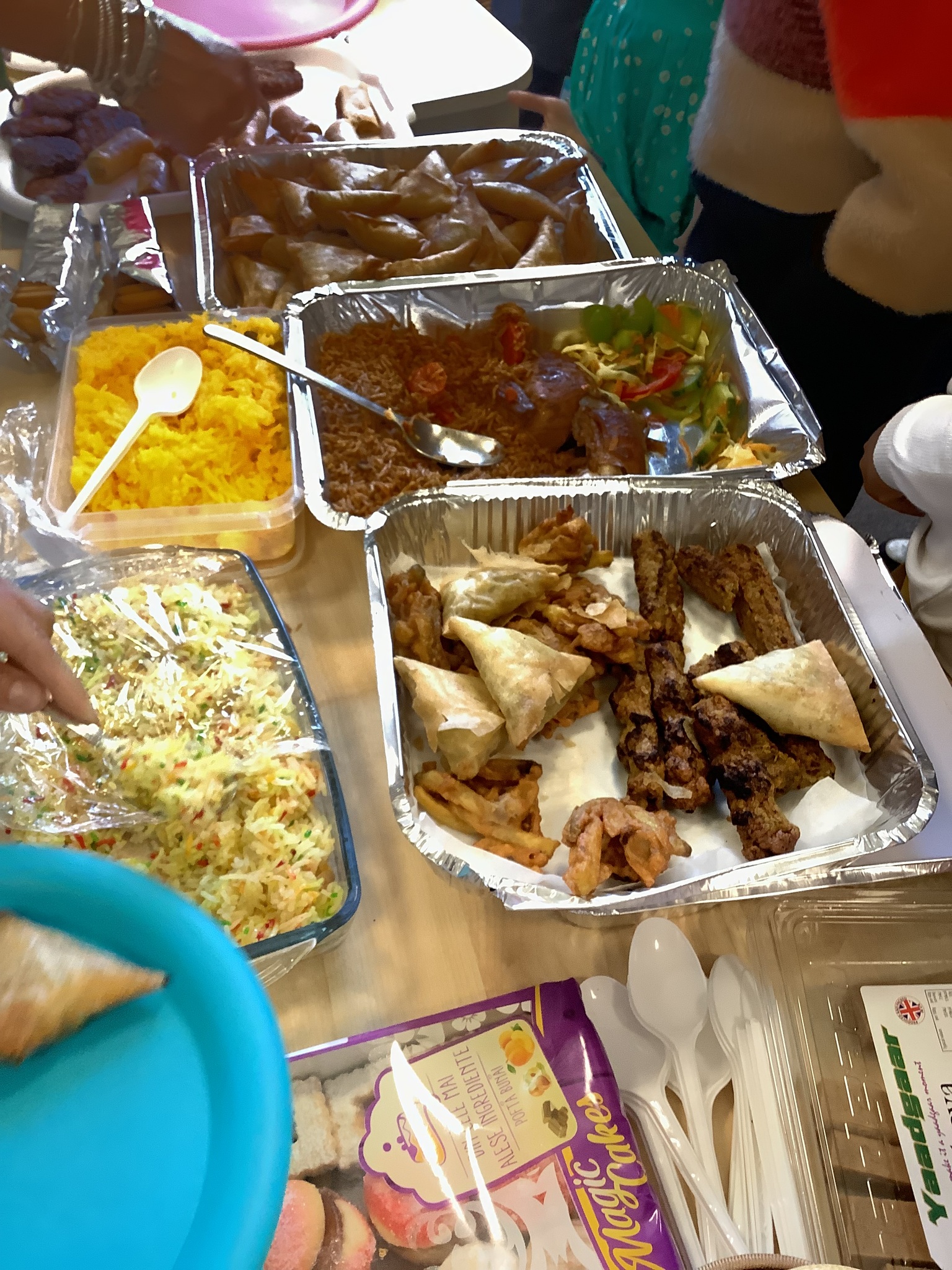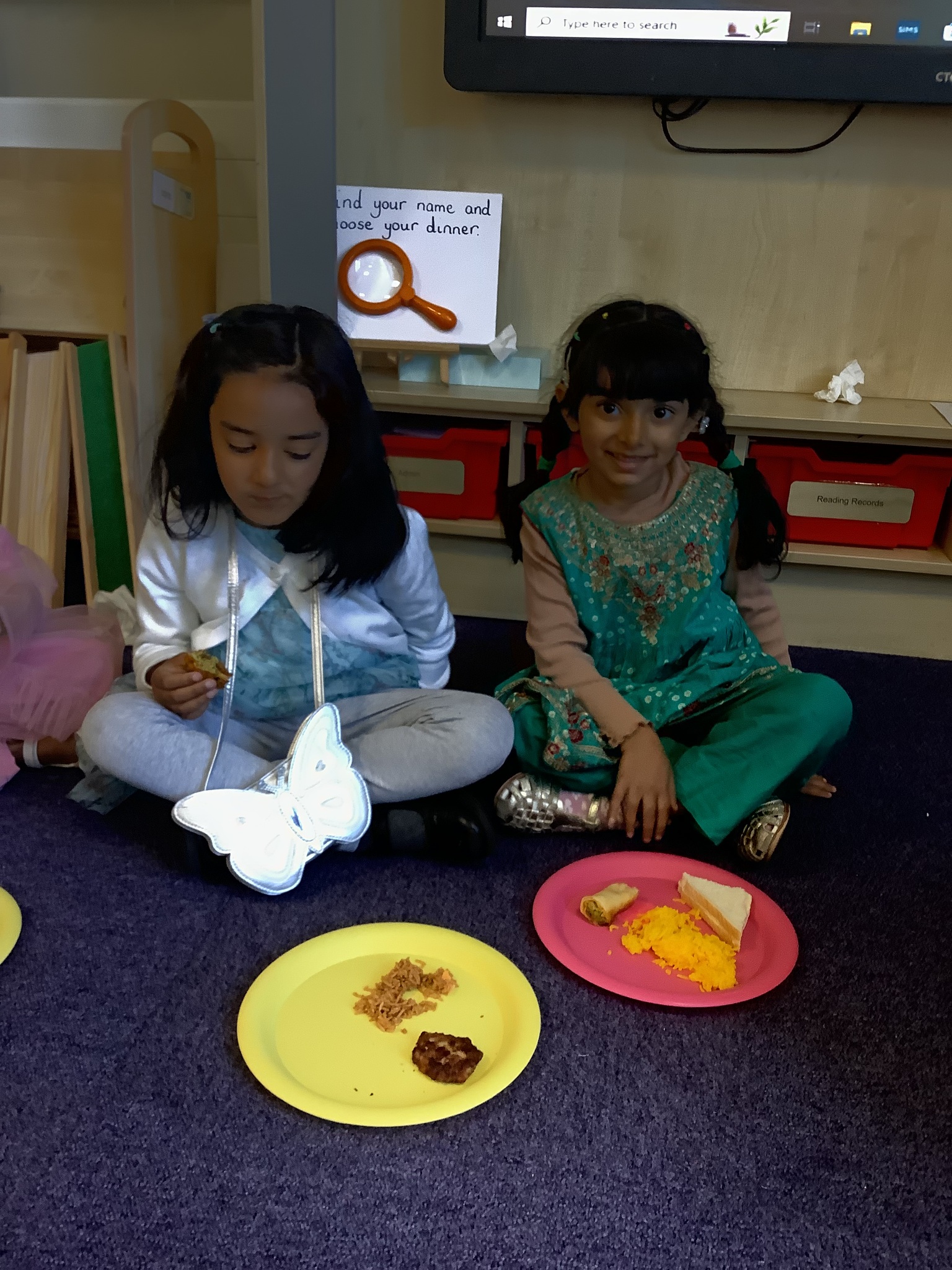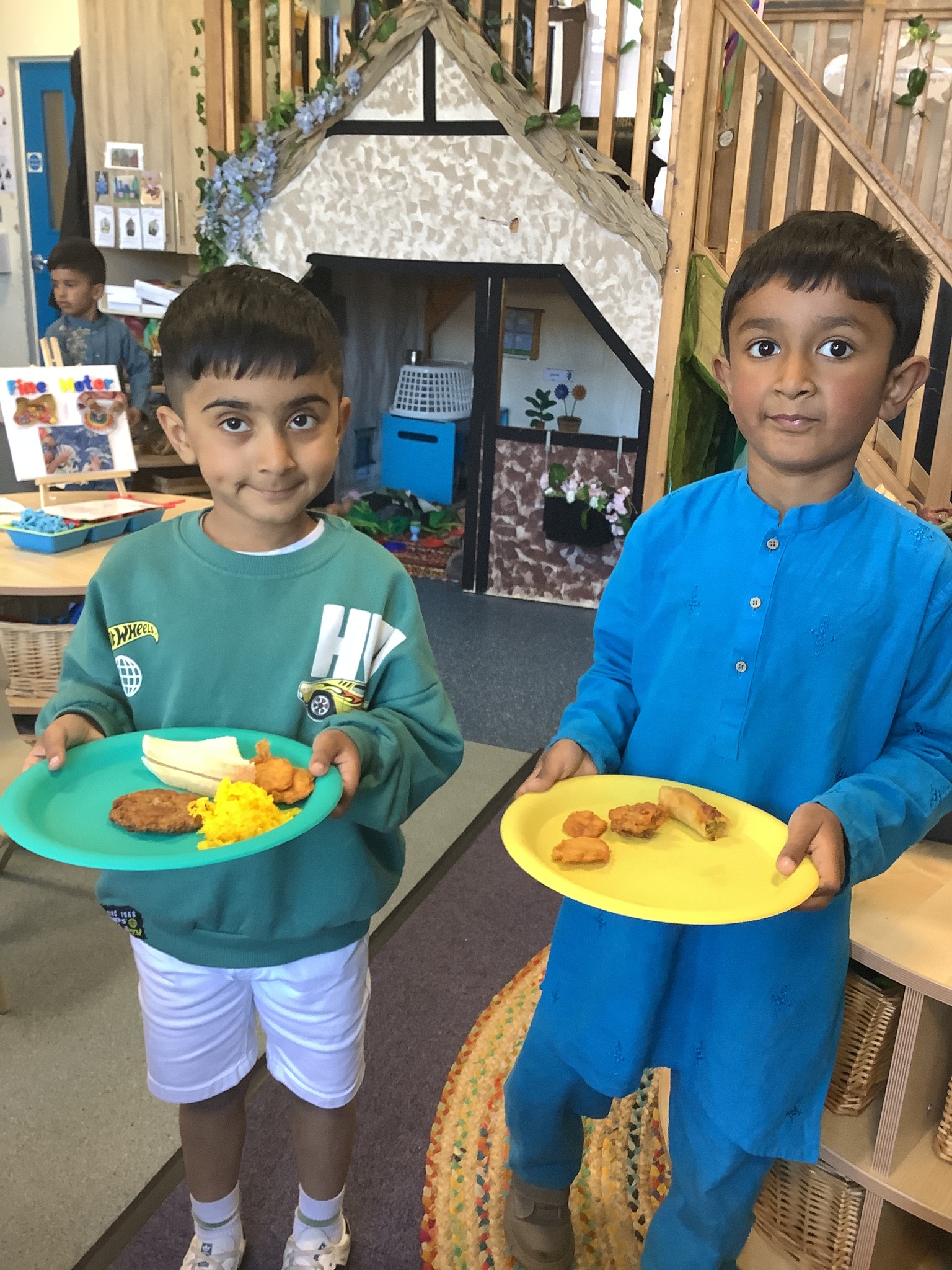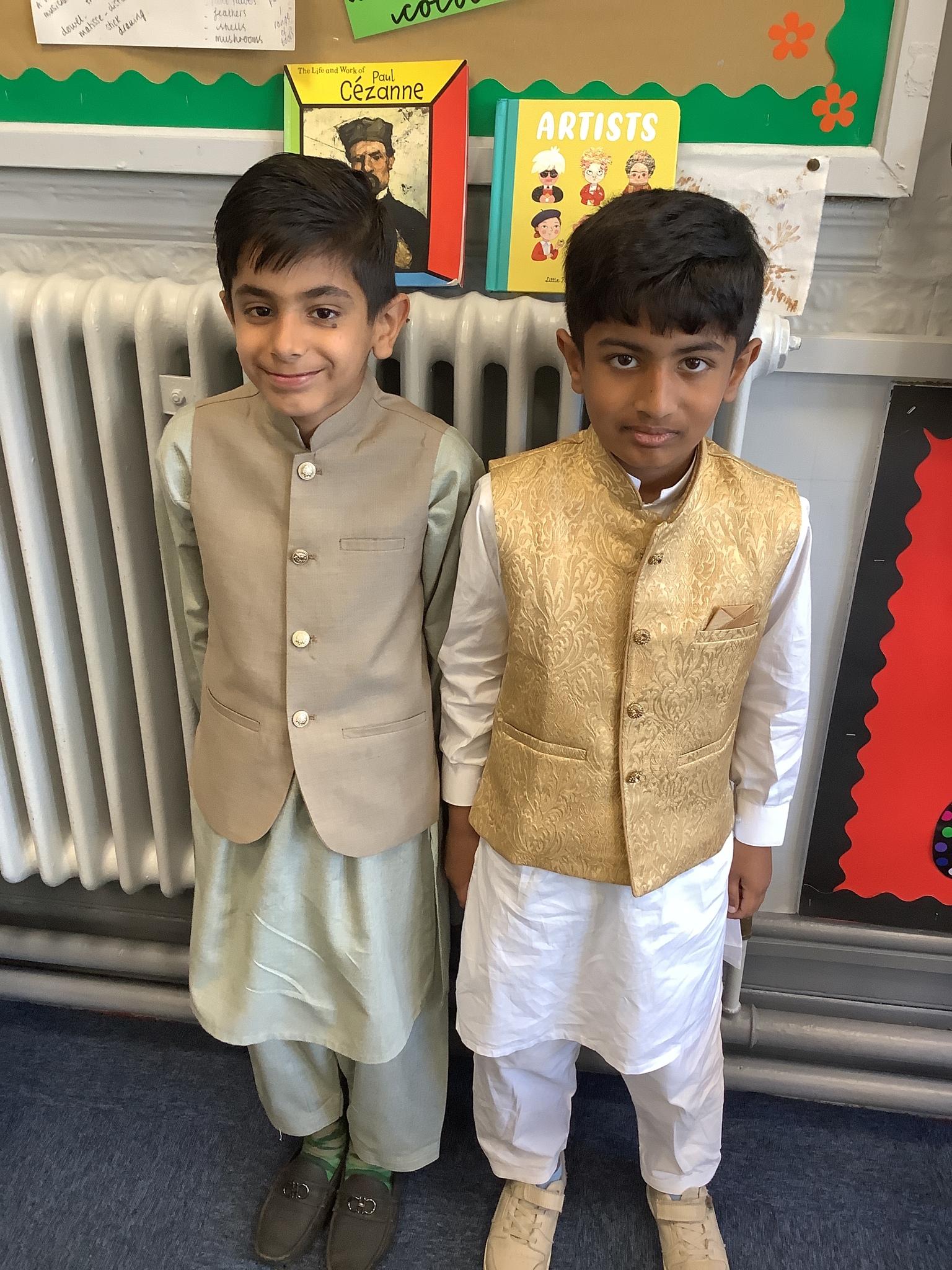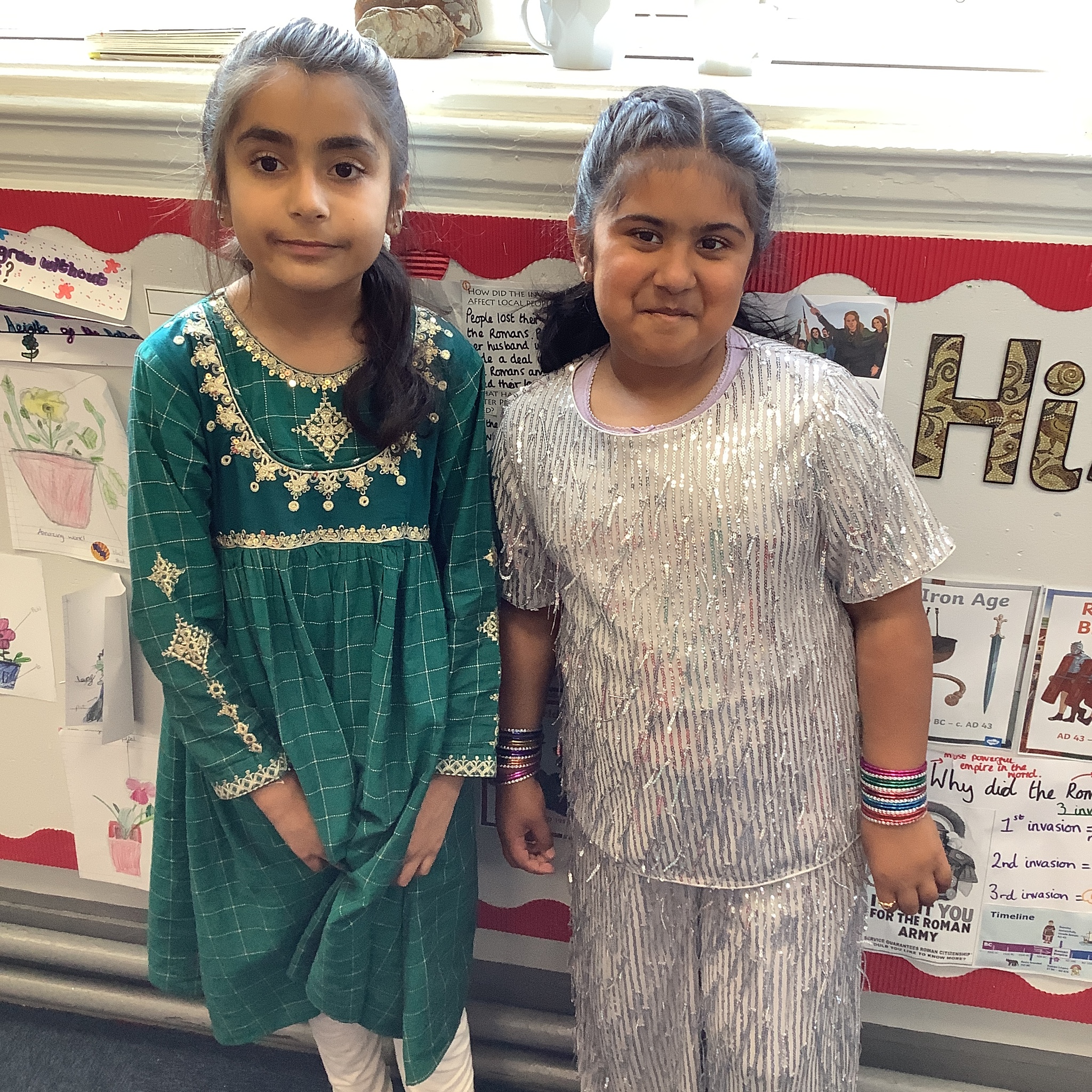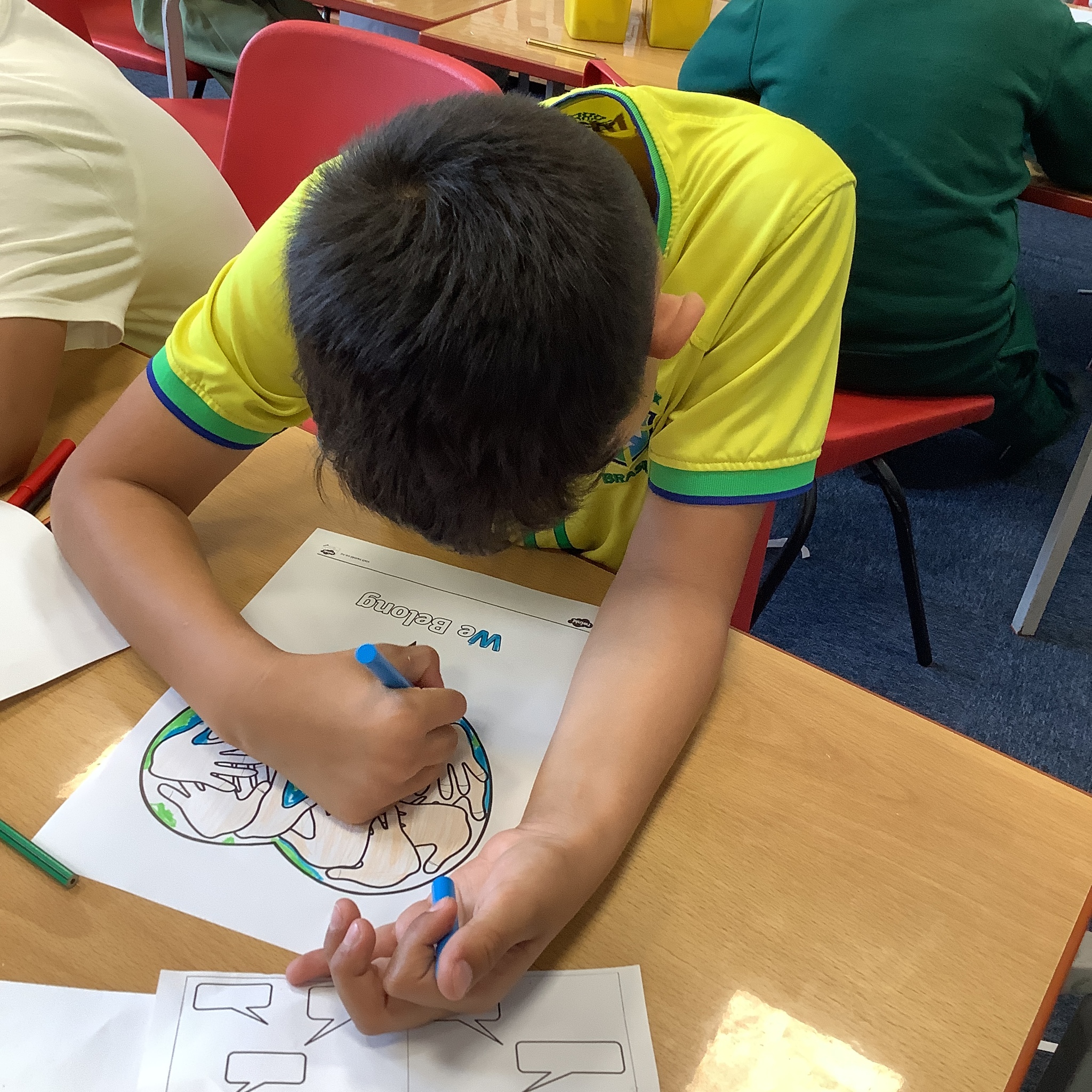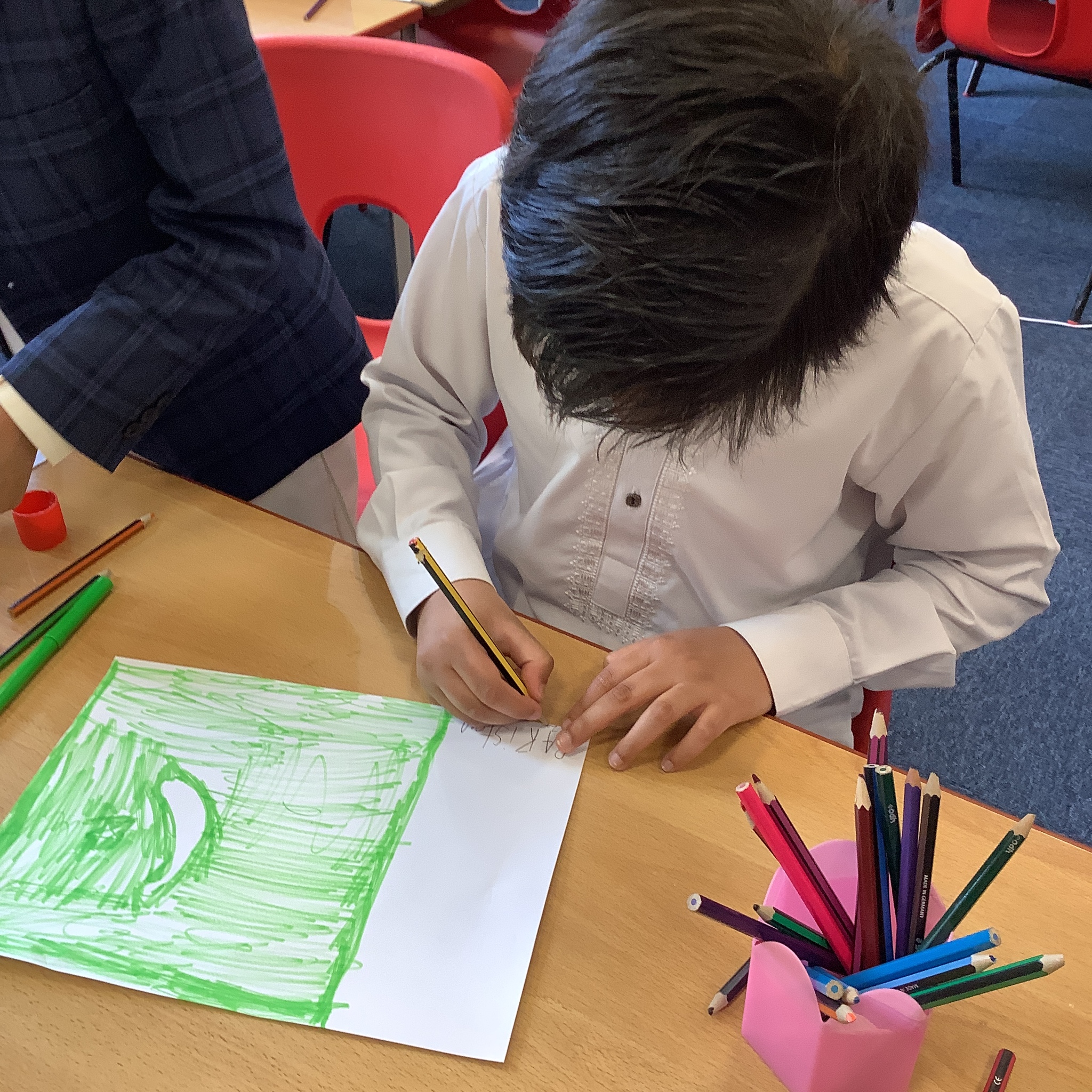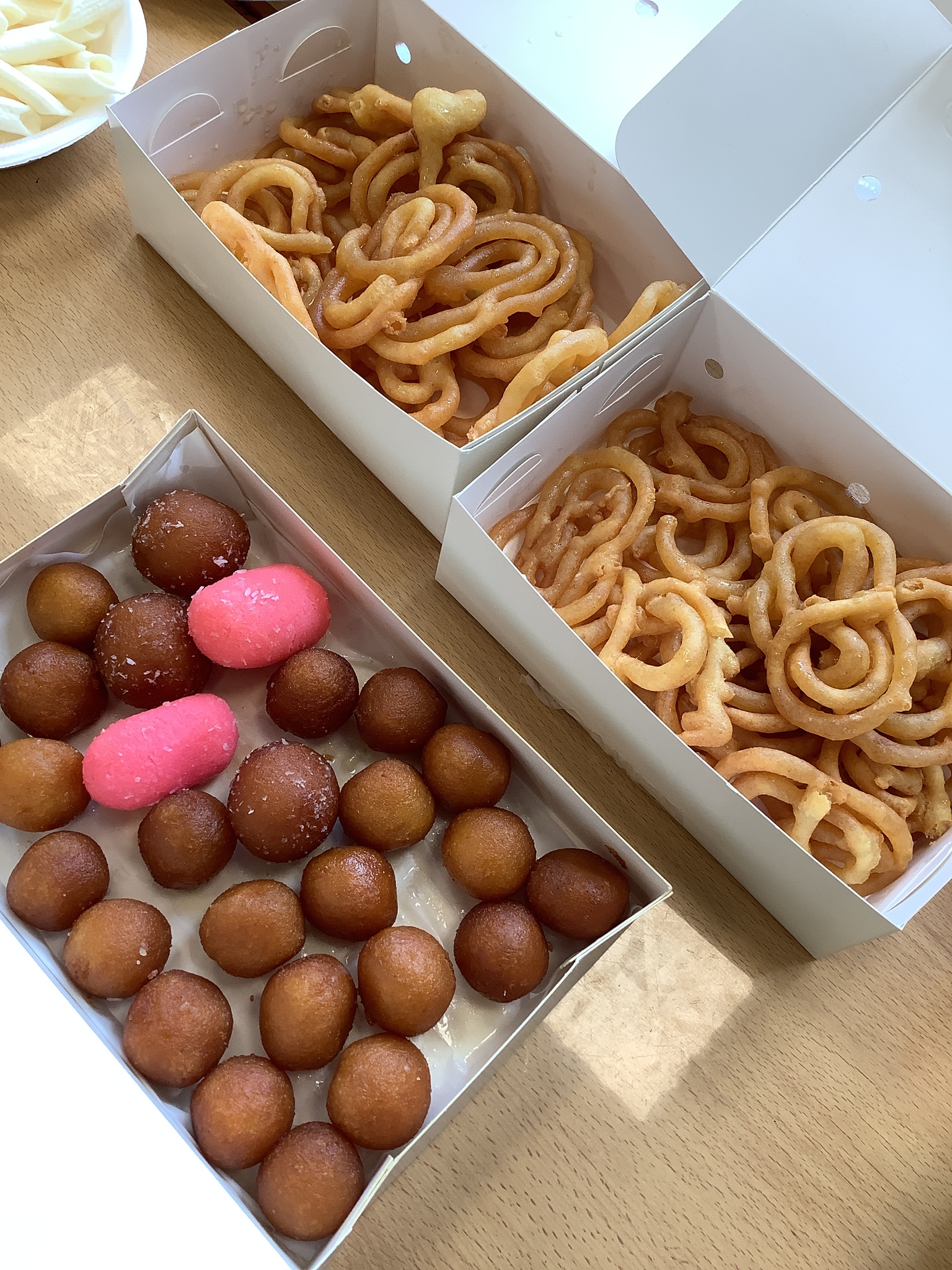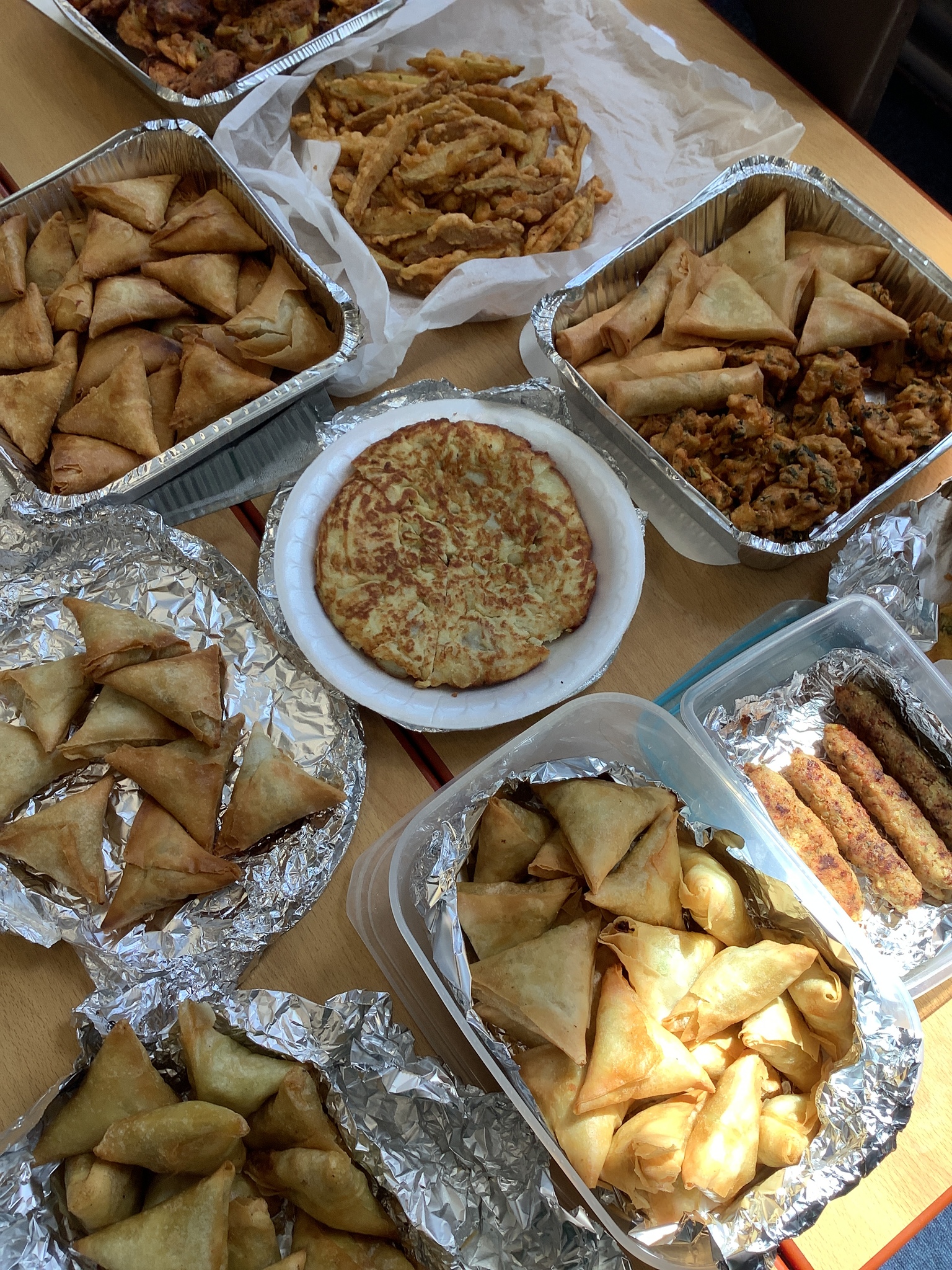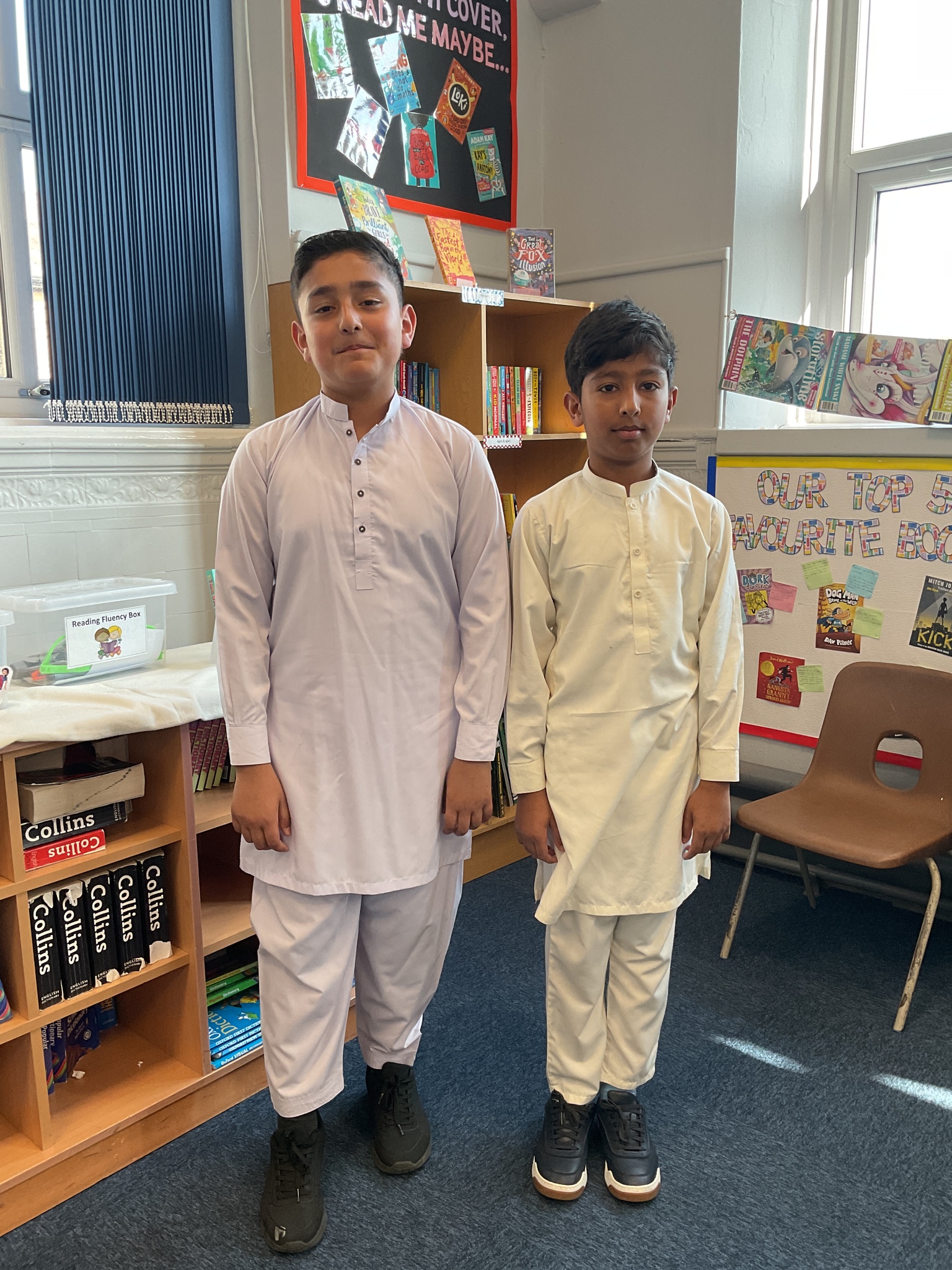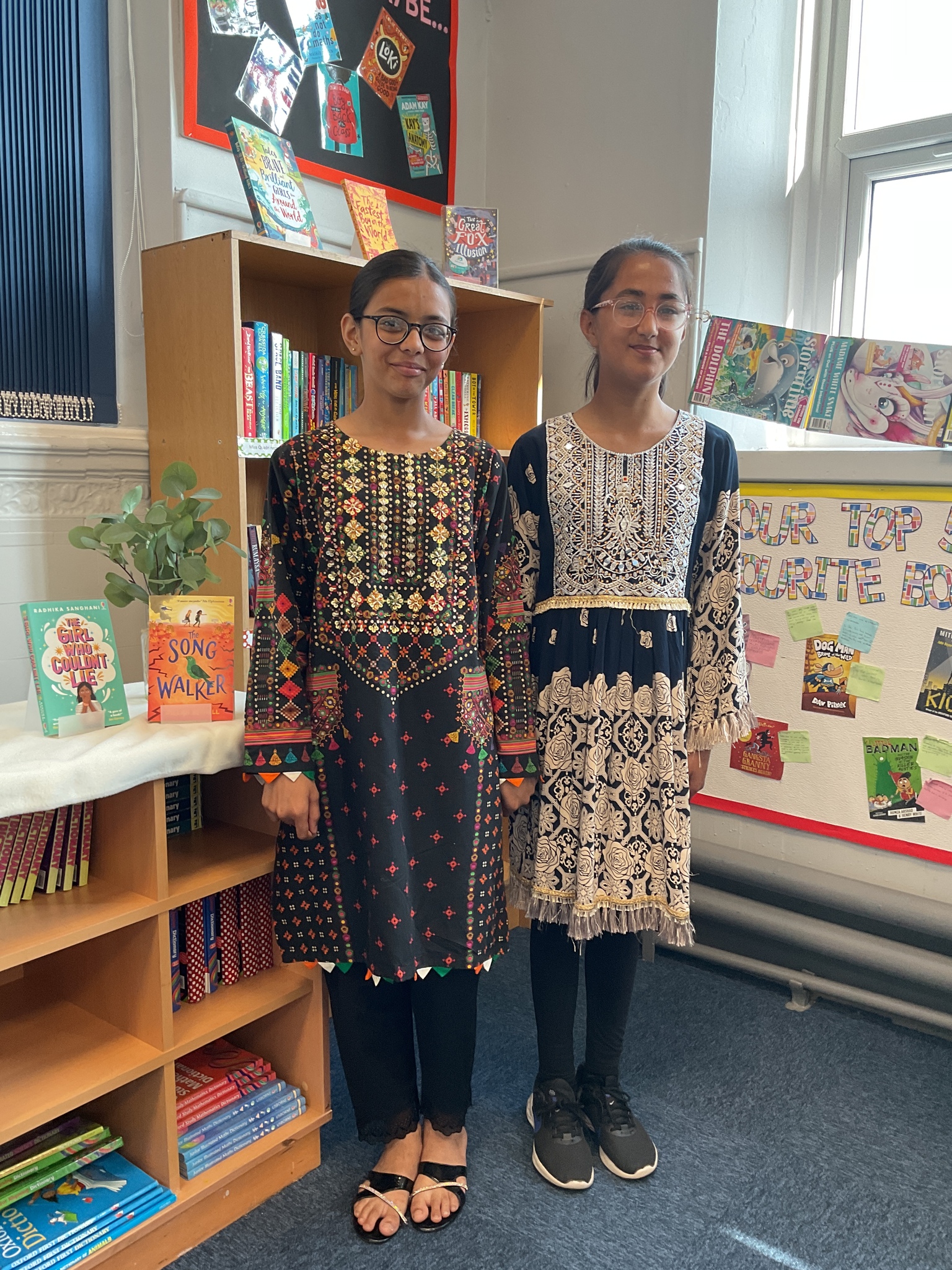Vision
At Bradley Primary School we recognise that Religious Education aims to inspire, engage and encourages pupils to develop their knowledge and skills through challenging questions, exploring different religious beliefs, values and traditions. Together the RE curriculum and school values teach children the fundamental British values of; understanding, tolerance and respect for people of different faiths and cultures; democracy; the rule of law and individual liberty.
All staff at Bradley Primary School understand that high quality teaching of Religious Education is central to the development of pupil’s knowledge of the beliefs and practices of different religions and worldviews. We believe Religious Education gives pupils valuable insights into the diverse beliefs and opinions held by people today. It helps with their own personal development and supports an understanding of spiritual, moral, social, and cultural questions.
Intent
At Bradley Primary School, Religious Education helps children to learn about their own religion and other people’s religion as well as transferrable skills such as consideration, tolerance, empathy and respect. There are opportunities within the curriculum for children to enhance their skills and knowledge in each unit and we ensure that the planned progression built into the scheme of work offers the children an increasing challenge as they move through the school. At Bradley Primary School we believe that it is important for all our pupils to learn from and about religion, so that they can understand the world around them. Education contributes to pupils’ spiritual, moral, cultural, intellectual, social and physical development by helping them:
- To understand what religions teach, what it means to be a religious believer and to be aware of experiences which raise issues about the meaning of life.
- To reflect on and respond to this understanding and awareness and to express their own ideas.
- Reflecting on individual experiences and fostering a personal response to the fundamental questions of life.
- Enables children to understand about other world religions and world views, their impact on society and culture, enabling children to express ideas and insights.
Implementation
The implementation of Religious Education involves providing pupils with a broad understanding of different religions through an enquiry and spiral based approach. Through this approach pupils can understand and appreciate their beliefs, whilst building on prior knowledge to ensure effective progression is made.
At Bradley Primary School Religious Education is taught in accordance with the Lancashire Agreed Syllabus. Our curriculum enables all pupils to achieve well and attain high level outcomes by the end of each Key Stage.
The teaching and learning sequence within each unit follows the same model:
- Shared Human Experiences
- Beliefs and Values
- Living Religious Traditions
- Search for Personal Meaning
Through this syllabus the children are encouraged to ask questions and search for their own answers, allowing children the opportunity for reflection. We enrich the curriculum by organising visits to places of worship, regular faith visits and the use of artefacts.
Impact
The impact of Religious Education is reflected in students' increased cultural awareness and understanding. The children at Bradley Primary School enjoy learning about other religions and making links between their own lives and those of others in their community and in the wider world. Through Religious Education, our children are developing an understanding of other people’s cultures and ways of life and worship. As a result, pupils show high levels of self-awareness and model respect and empathy for others.
Happy Chinese New Year 2026- "Gung Hay Fat Choy"
Today we celebrated Chinese New Year as a whole school. Everyone wore red and gold, as these are the traditional colours of Chinese New Year. Red symbolises good luck, happiness, and protection from misfortune, while gold represents wealth and prosperity for the year ahead.
We gathered for a whole‑school assembly and learnt lots of interesting facts about Chinese New Year. We explored the 12 animals of the Chinese zodiac and discussed the story behind them. We also compared Chinese New Year to other religious and cultural celebrations we have learnt about in school, looking closely at the similarities — such as gathering with family, sharing food, and giving gifts — and the differences in traditions, symbols, and stories.
In Reception, the children created repeating patterns using noodles and practised writing Chinese numbers using chopsticks, helping them develop their fine motor skills while learning about another culture.
Across the school, each class received a small bag of sweets so that every child could be given one special red sweet at the end of the day. In Chinese culture, gifting something red — especially sweets — symbolises wishing someone a sweet, joyful, and lucky future. Red is believed to bring protection and good fortune, and sharing red sweets is a way of passing on blessings for the year ahead.
Visit from Fr Guy Jamieson
In October, we were delighted to welcome Fr Guy Jamieson to our school. Fr Guy, a vicar in the Christian Church, spoke to pupils about his role and what it means to live as a Christian. He brought a selection of religious artefacts for the children to examine and led a whole-school assembly where pupils had the opportunity to handle some of these items. The session also included some interactive role-play, which helped bring his message to life and gave pupils a deeper understanding of Christian traditions, practices and what it means to be kind and to love others.
Hindu Dharma
As part of our RE learning, the whole school came together to celebrate Diwali with a joyful mix of cultural, creative, and educational activities. Pupils kicked off the day with a special video about Diwali, followed by a vibrant assembly led by Aruna from the Hindu community.
Throughout the day, children decorated Diya lamps, joined drama workshops, and learned traditional Hindu dances to perform in a lively end-of-day showcase. EYFS enjoyed storytelling and a festive Diwali party, while all pupils contributed to a “Celebrate the Light of Diwali” poster.
In the lead-up, classes explored Diwali traditions and the story of Rama and Sita.
Everyone had a brilliant time!
In year 5 our children went to visit a Hindu Temple.
Church
Year 3 visited the local church, as they were learning all about Jesus in Christianity.

Guru Gobind Singh Gurdwara
Year 4 visited the Guru Gobind Singh Gurdwara, as they were learning about Sikhism in RE. During this trip, they were able to try Sikh food, explore the 5 k's and spoke to members of the Gurdwara.

Chinese New Year
Chinese New Year (CNY) is not tied to any particular religion, unlike many other festivals around the world, which are influenced by religious beliefs. Instead, it is a cultural celebration marking the start of the lunar new year. This year, our reception children joined in the festivities. 2025 is the Year of the Snake.
World Culture Day
At Bradley, we respect all faiths and religions. These are the flags we created when celebrating World Culture Day. We enjoyed learning about different religions and cultures. Some of the religions we looked at were: Islam, Christianity and Hinduism.
Ramadan
During the 29/30 days of Ramadan our children decorated their classrooms.
Christianity
In April our children were given the opportunity to take part in an Easter Egg competition. Easter is the most important festival in the Christian calendar. Lots of children, from every year group took part in the competition. Our school council had the hard decision of choosing a winner from every year group!
During December the whole school participated in decorating their classrooms, with Christmas decorations and our Reception children performed the nativity 'Away in a Manger''. The nativity is another central event in the Christian religion. Father Christmas came to visit our school and he brought all of our children a present. As a whole school, our children also took part in MADD week where we did lots of dancing, singing and art. Each year group had to learn a Christmas song and make a decoration. It was so much fun!
The entire school came together to celebrate Diwali through a joyful mix of cultural, creative, and educational activities such as-
- Pupils began the day by learning about Diwali through a special video.
- The festivities began with a vibrant whole-school assembly led by Aruna, a respected member of the Hindu community.
- Pupils engaged in decorating Diya lamps and joined in Drama workshops with Aruna.
- Each class learnt a dance to traditional Hindu music, ready to showcase their performance at the end of the day.
- Pupils created a “Celebrate the Light of Diwali” poster.
- EYFS enjoyed storytelling with Aruna and a Diwali party in the afternoon.
- The day ended with a vibrant 'Dance Showcase', where each group performed their Diwali-themed dance.
In the lead-up to the celebration, pupils explored Diwali traditions through engaging videos and learnt the story of Rama and Sita.
Everyone had a great time!! Here are some of the pictures which were taken during Diwali Day.
Harvest is a special time of year when people give thanks for all the food that has been grown. It usually happens in the Autumn, when fruits, vegetables, and grains are gathered from the fields. We have celebrated Harvest in our school this year by learning songs, making a Scarecrow and collecting food for those who are in need.
During Harvest Week, pupils at Bradley Primary collected non-perishable food items. The R.E. Ambassadors and School Council chose to donate the collection to Curry On The Streets. The kindness and teamwork shown by our children truly reflect the values we uphold at Bradley Primary.
Thank you to all families and staff who supported this wonderful cause!
We are so proud of the amazing work our children have been doing in Religious Education! Here are some wonderful examples of their WOW work, showing creativity, thoughtfulness, and a deep understanding of the topics we've explored.
Let's celebrate their achievements together—well done everyone!
On Wednesday 21st May, we celebrated World Culture Day. This special day was a wonderful opportunity for our students to learn about and appreciate the rich diversity of cultures around the world. World Culture Day promotes individual differences and the need to respect each other’s differences, celebrating them.
Our goal as a school is to promote understanding and unity among all cultures. We believe that celebrating our differences makes us stronger and more connected.
On this day children came to school dressed in the colours of their flags or wore their own cultural clothing. Children also brought in traditional food to share with their peers.
During the day the students took part in various activities such as:
- Decorating their mother language flag
- Learning phrases in different languages
- Learning about a famous figure
- Craft stations inspired by global traditions
As part of World Culture Day our students researched various famous people. The reason being, children need to understand how religion is not defined by appearance, and that people of all races, ethnicities, and backgrounds practice every major faith. Our students created fact files/posters about their chosen person.
Key Message-
“Faith Has No Face" – A simple, memorable phrase that reminds us that religion isn’t tied to how someone looks.
"Different Faces, Shared Faiths” – Emphasises unity and diversity within religions.
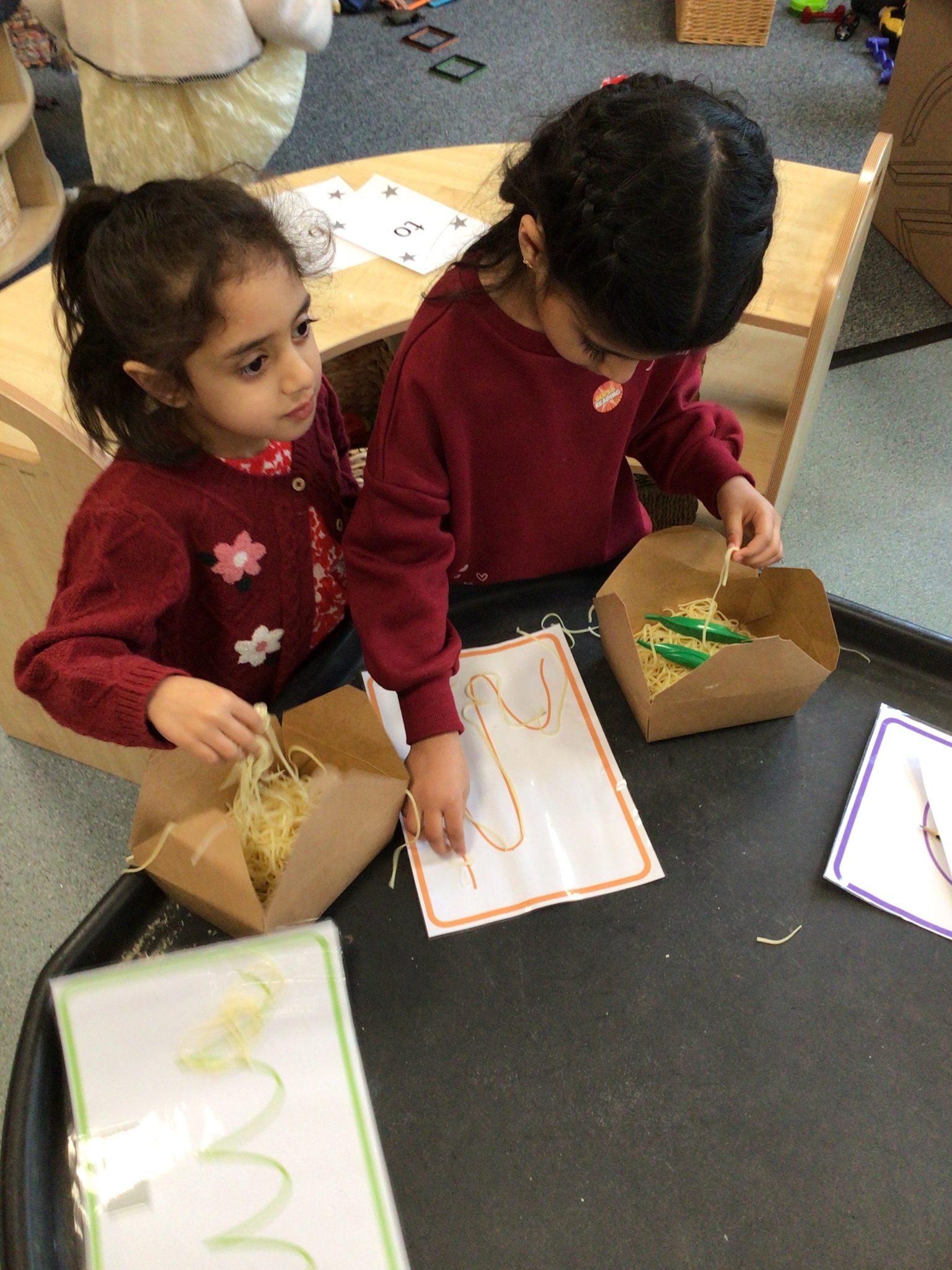
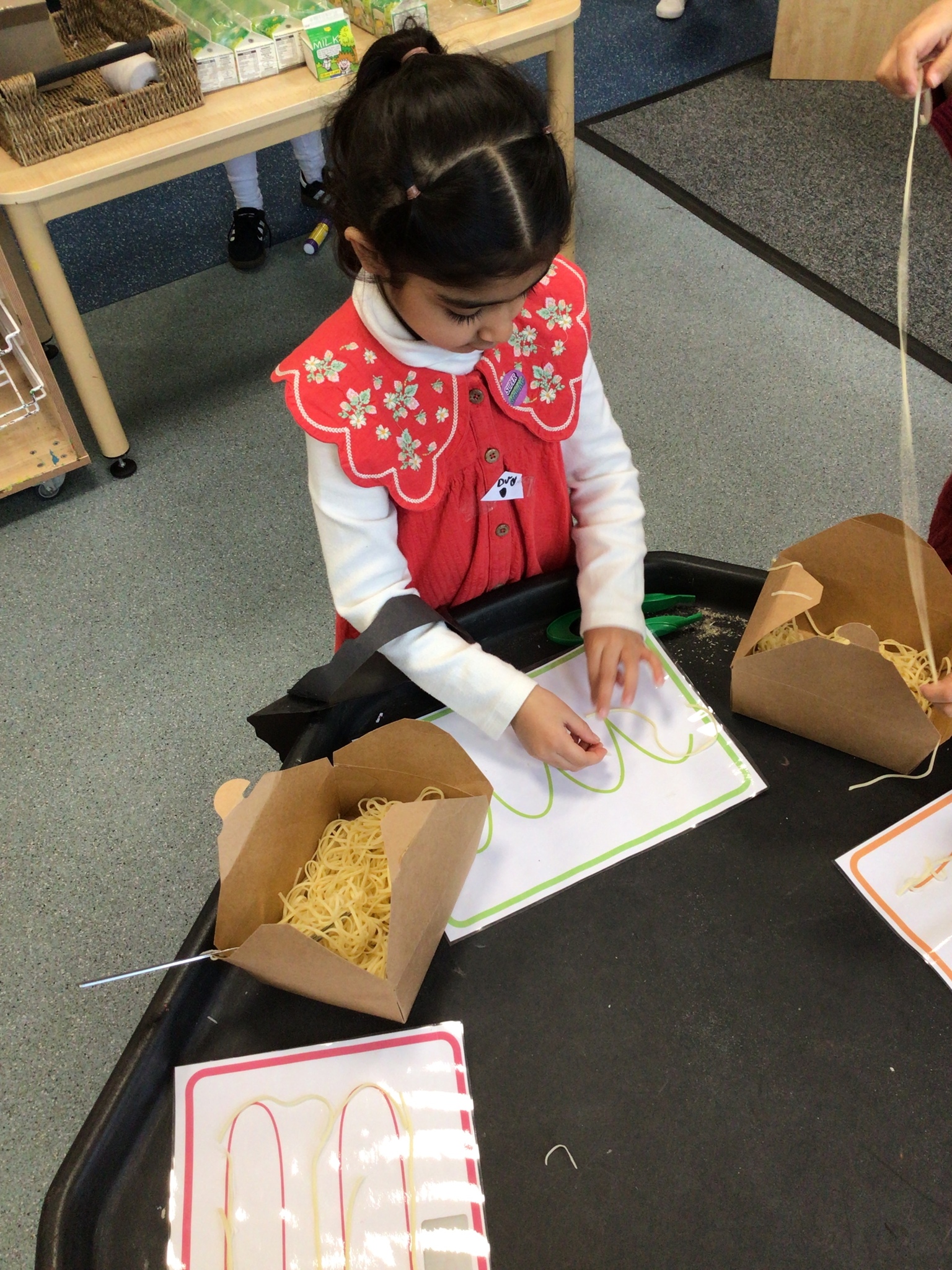
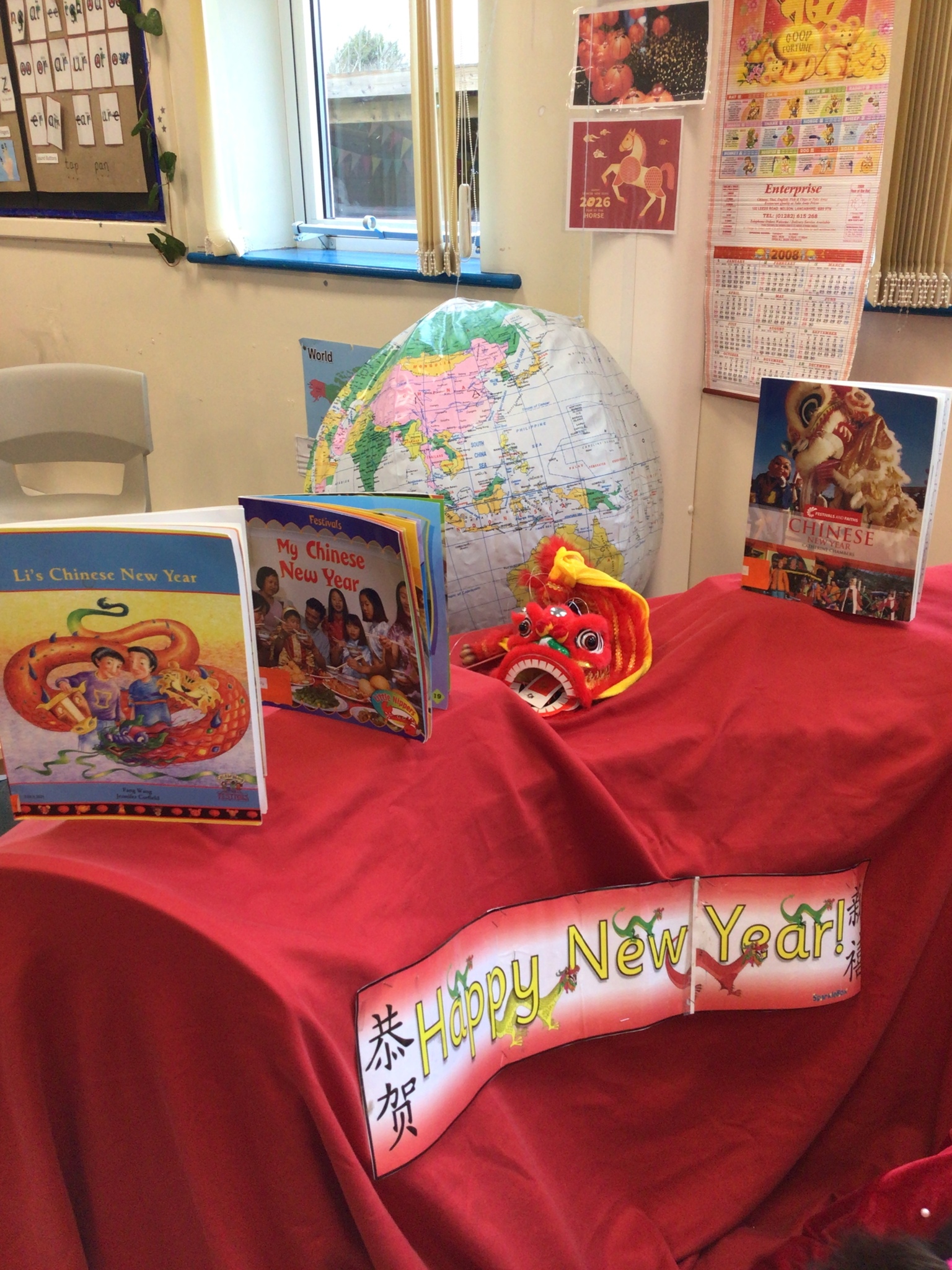
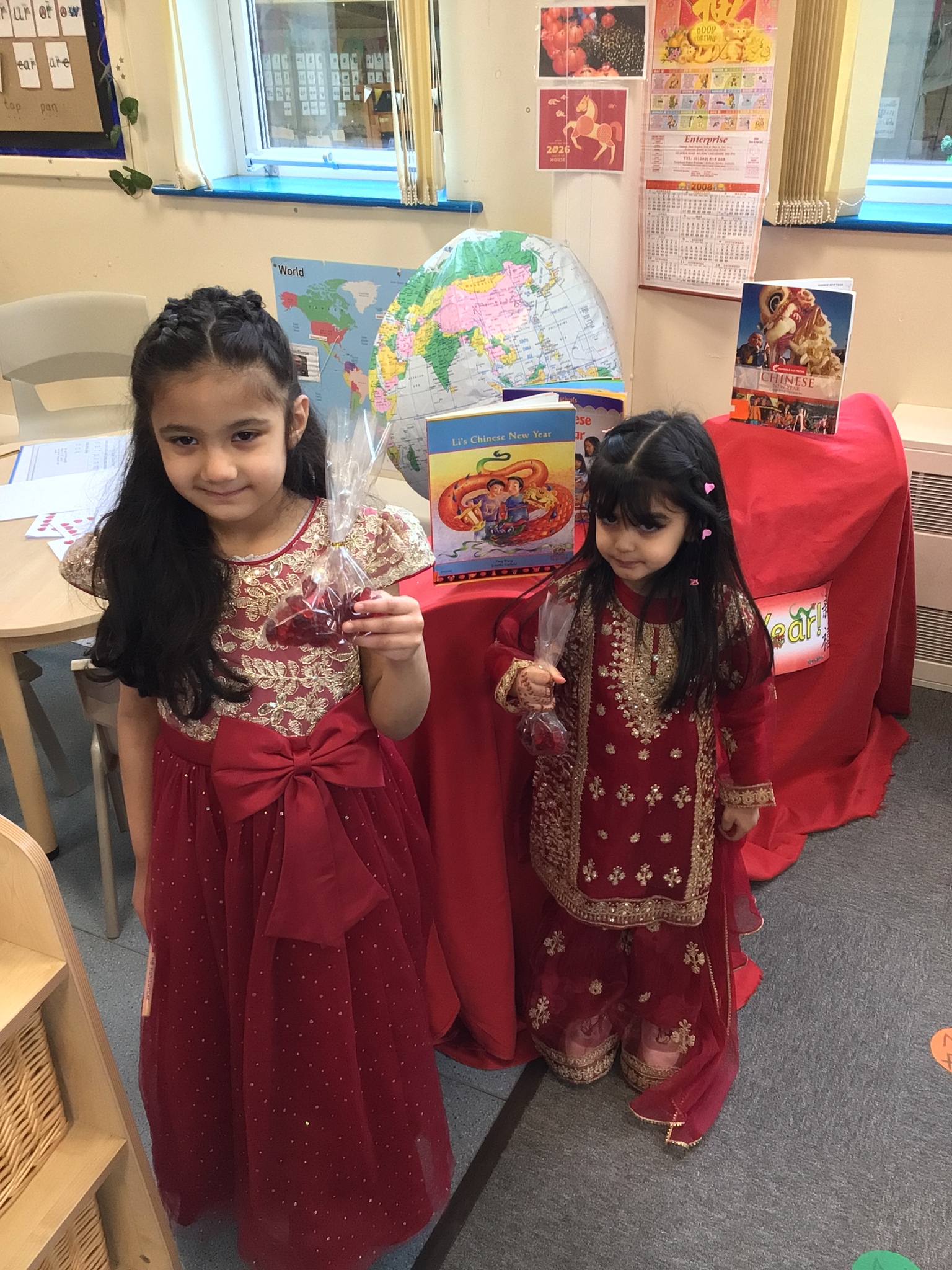
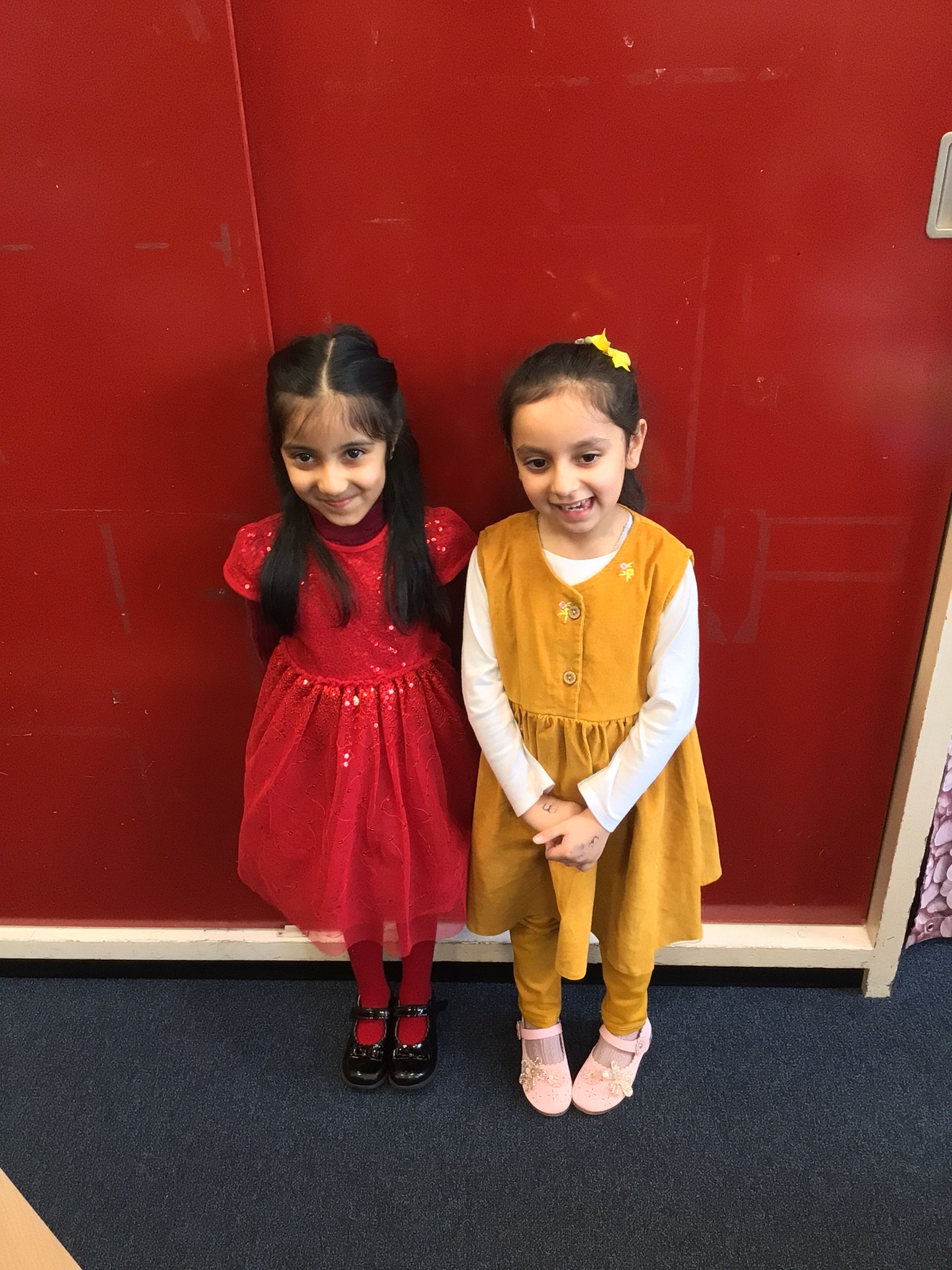
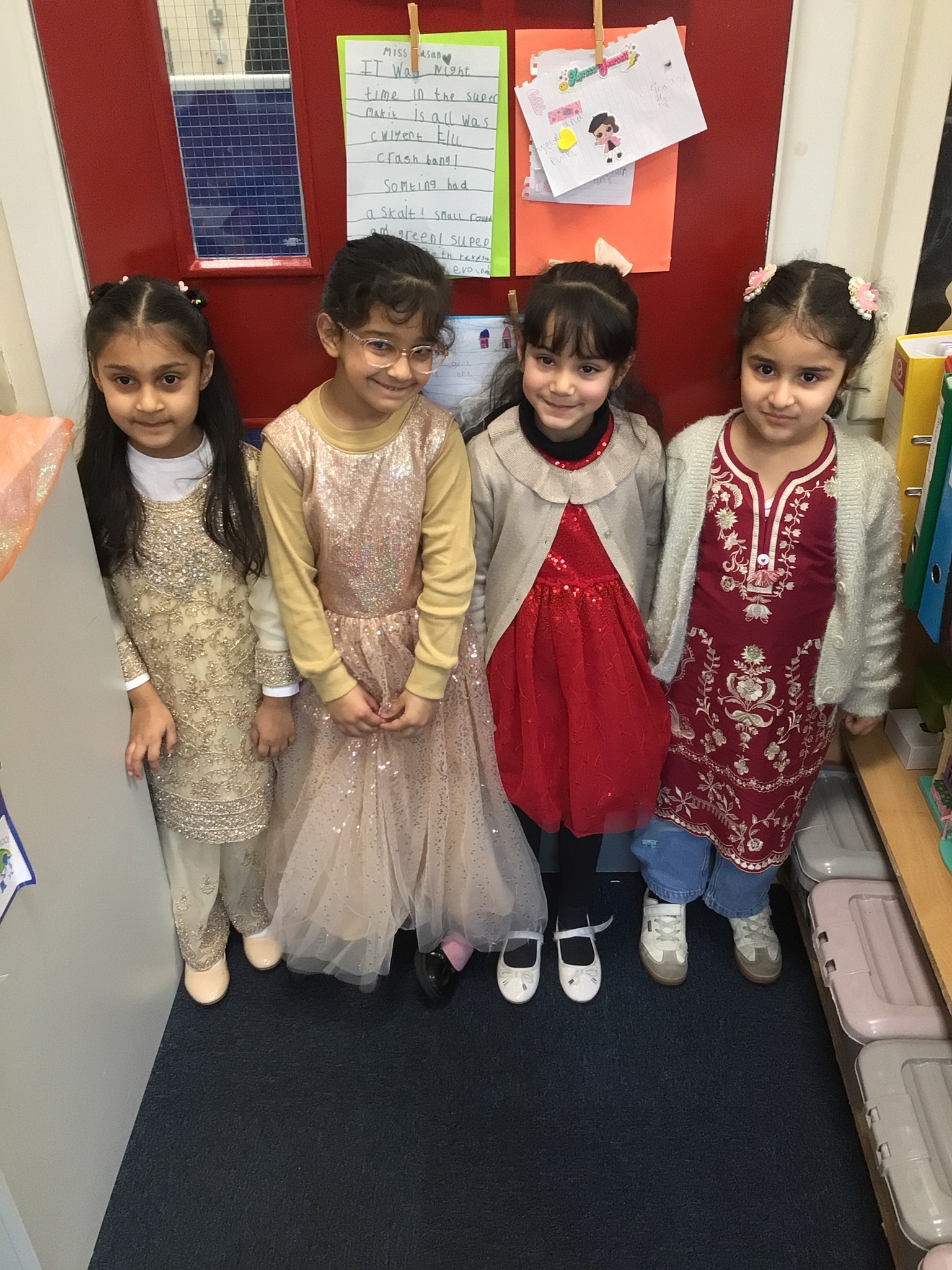
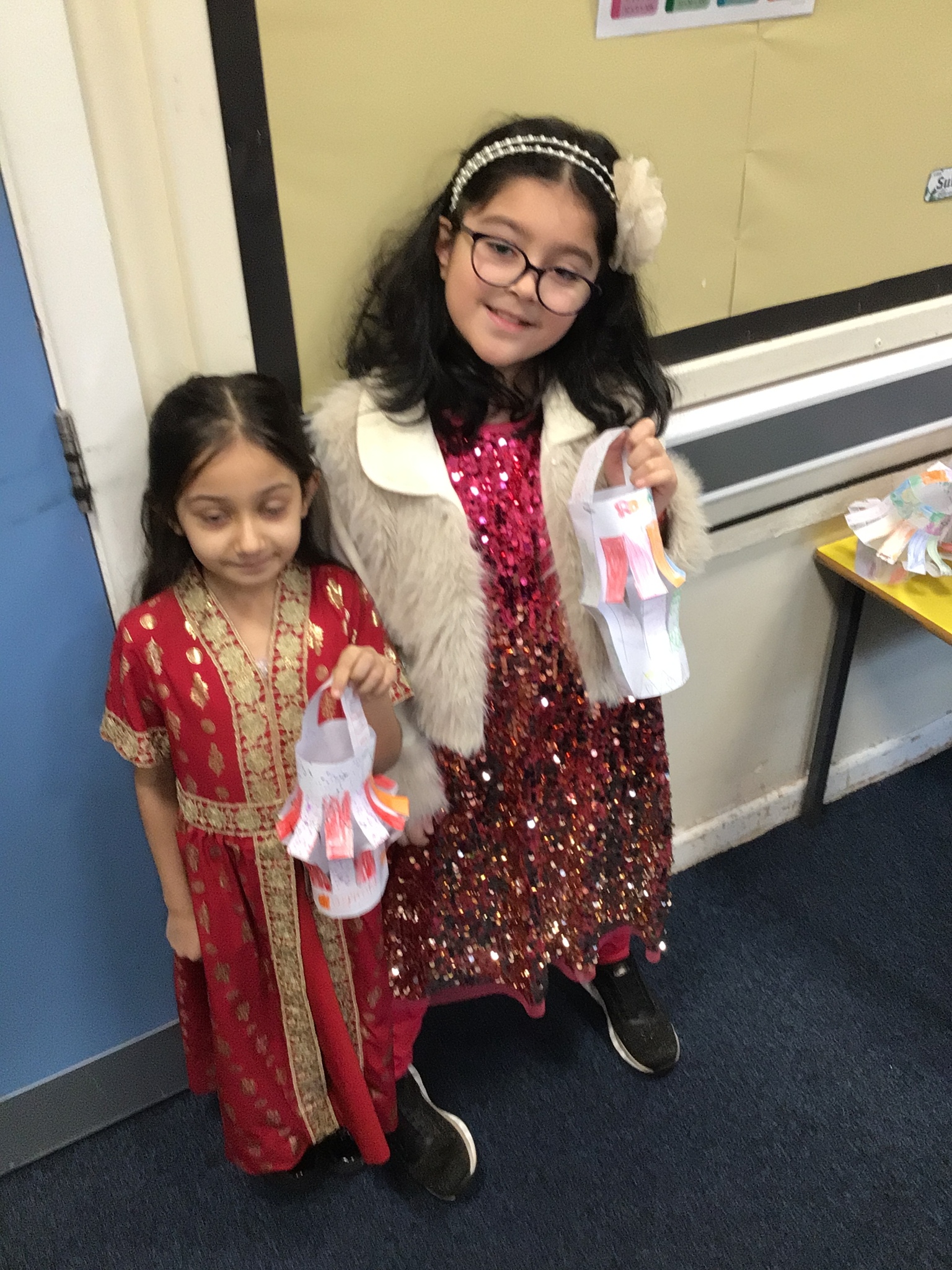
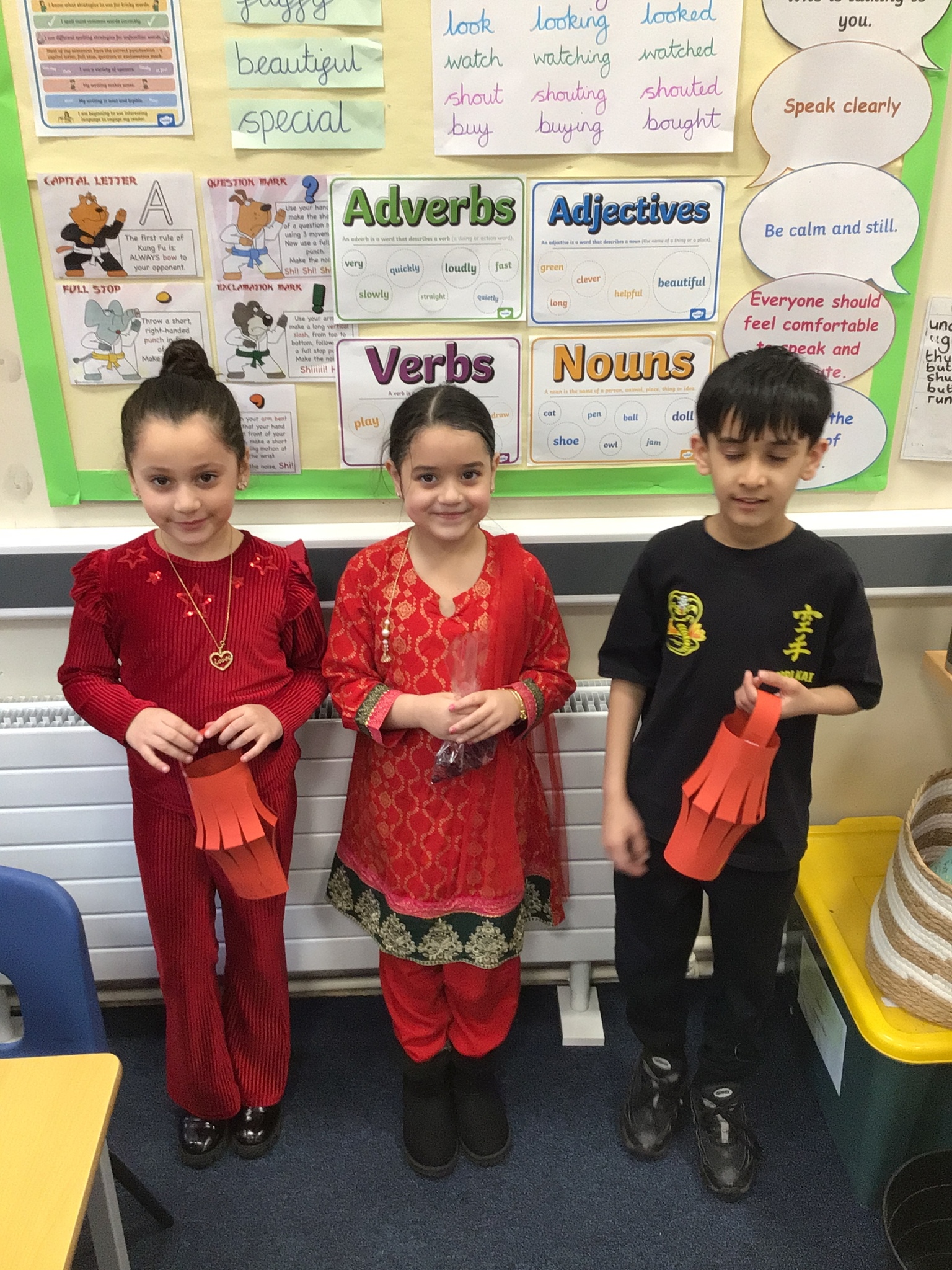
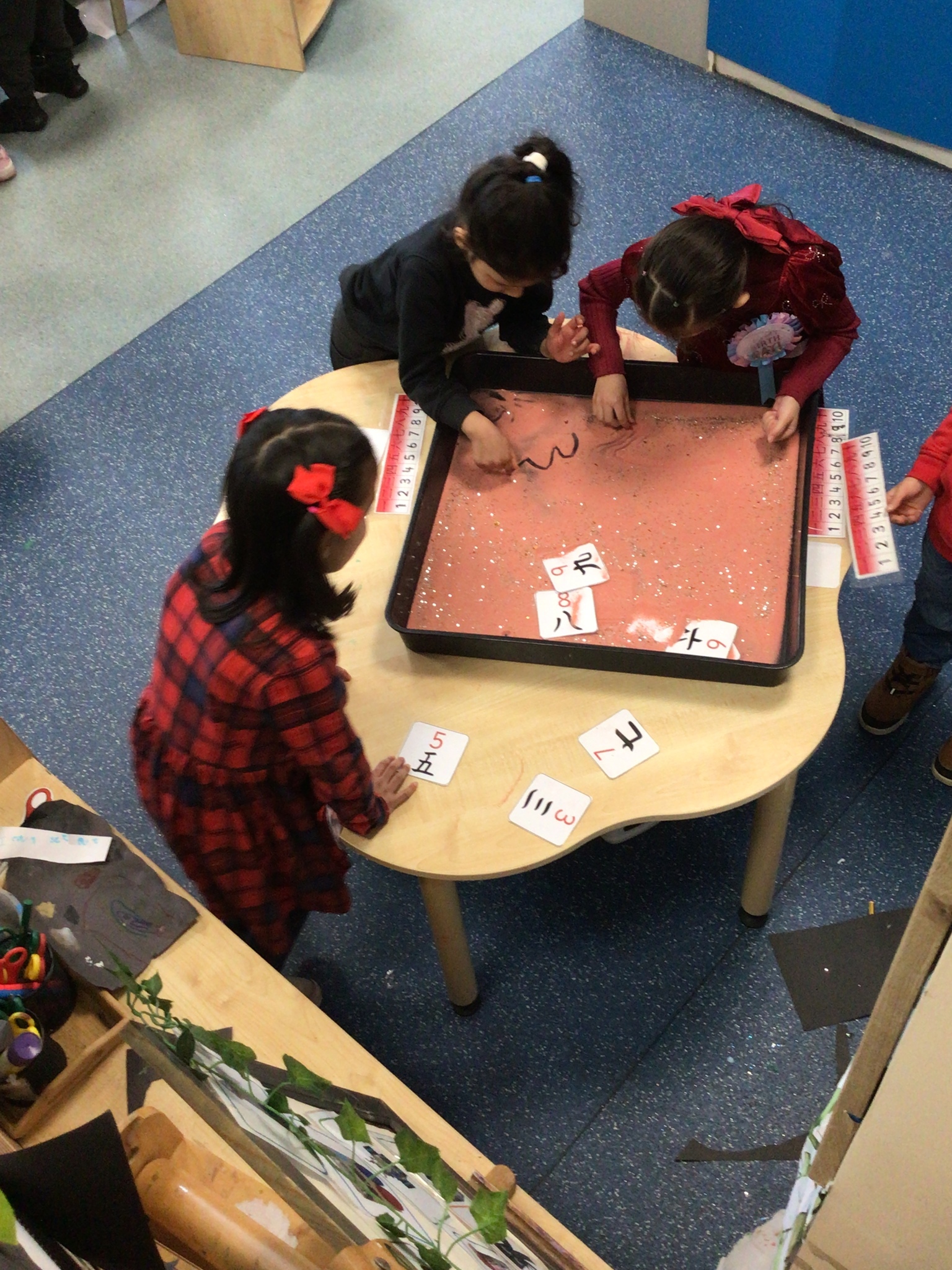












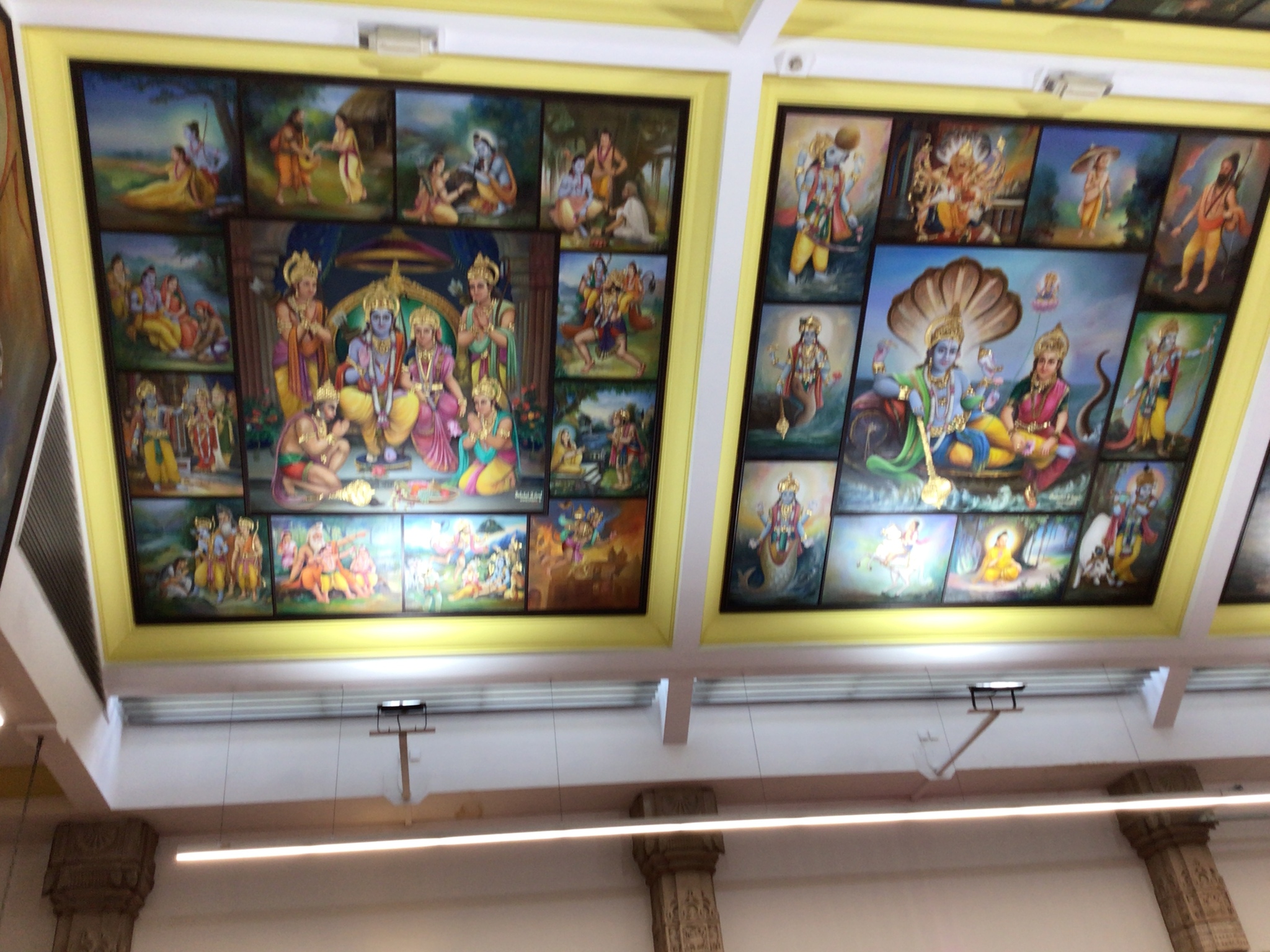
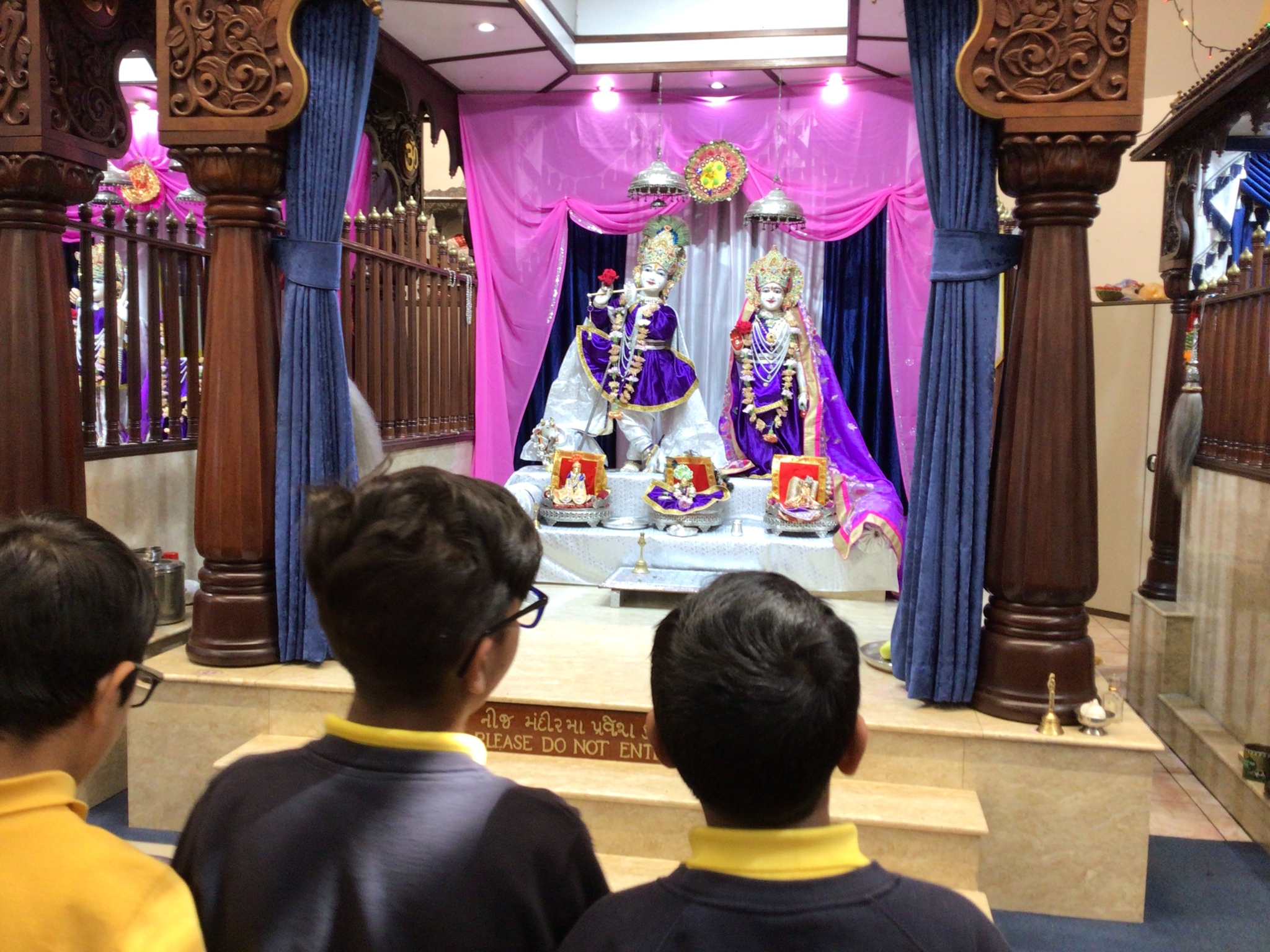
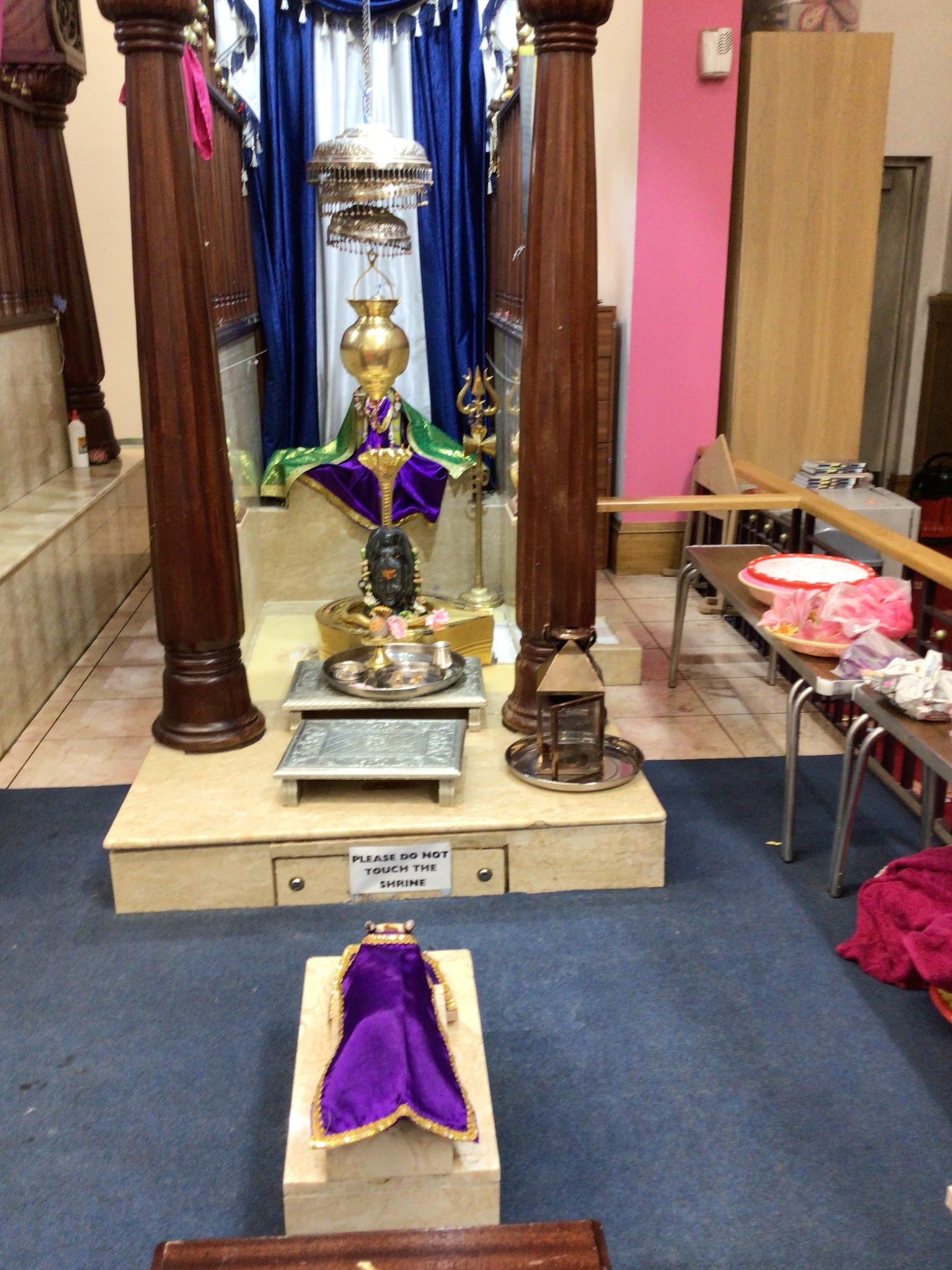
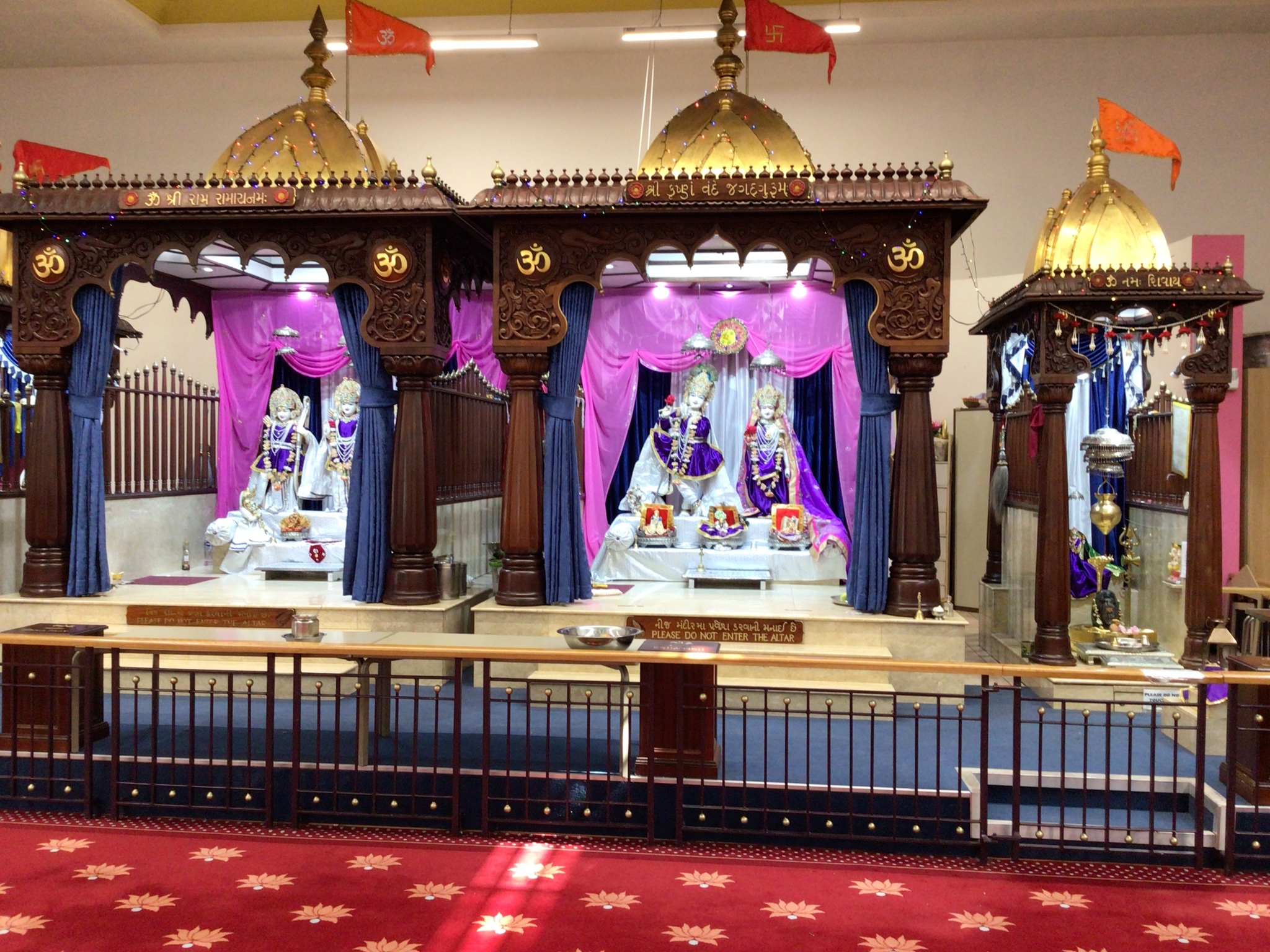
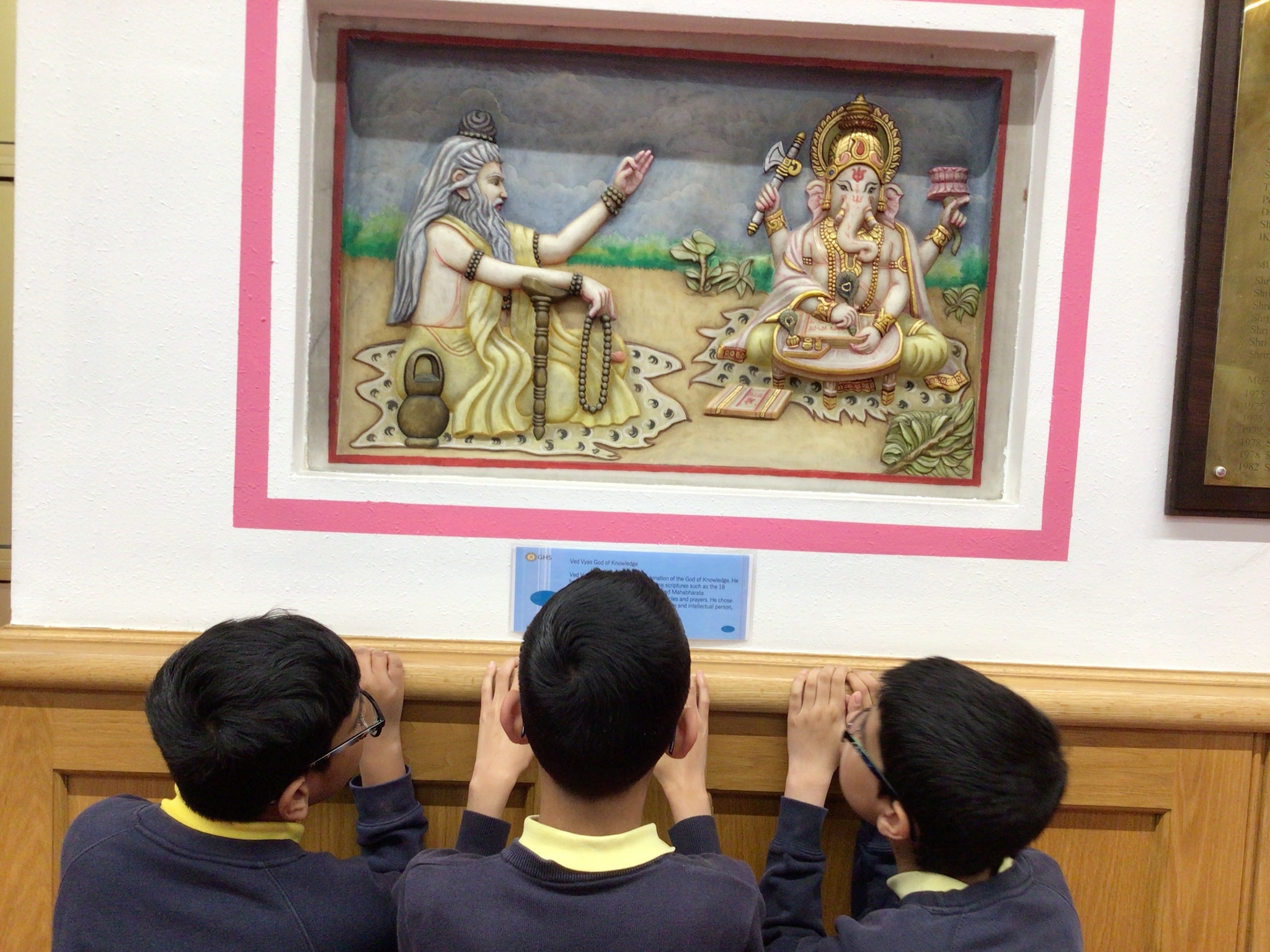
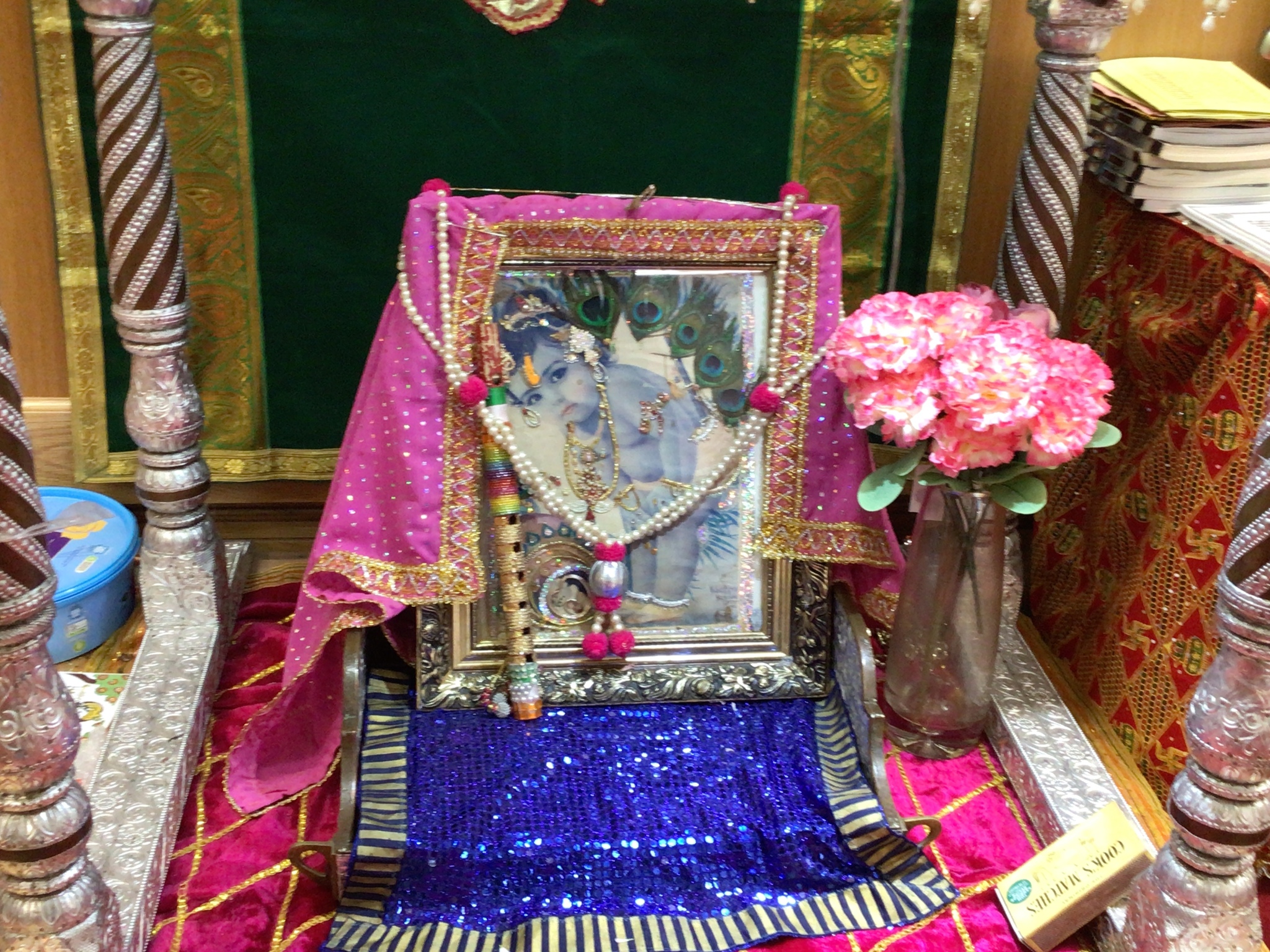
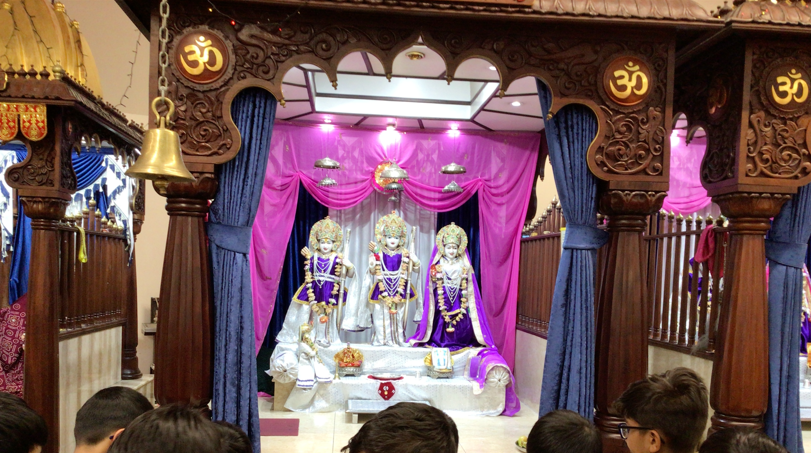
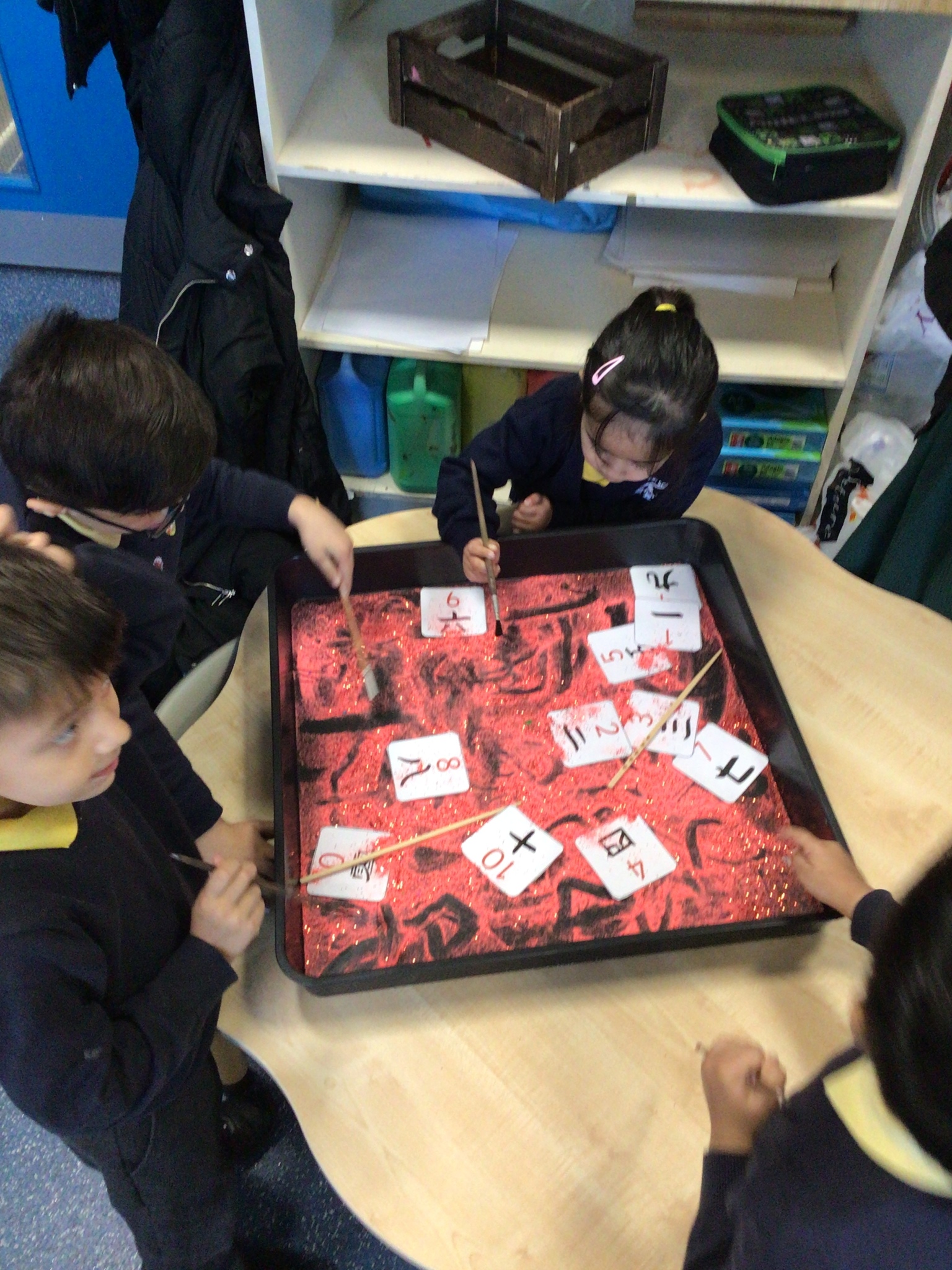

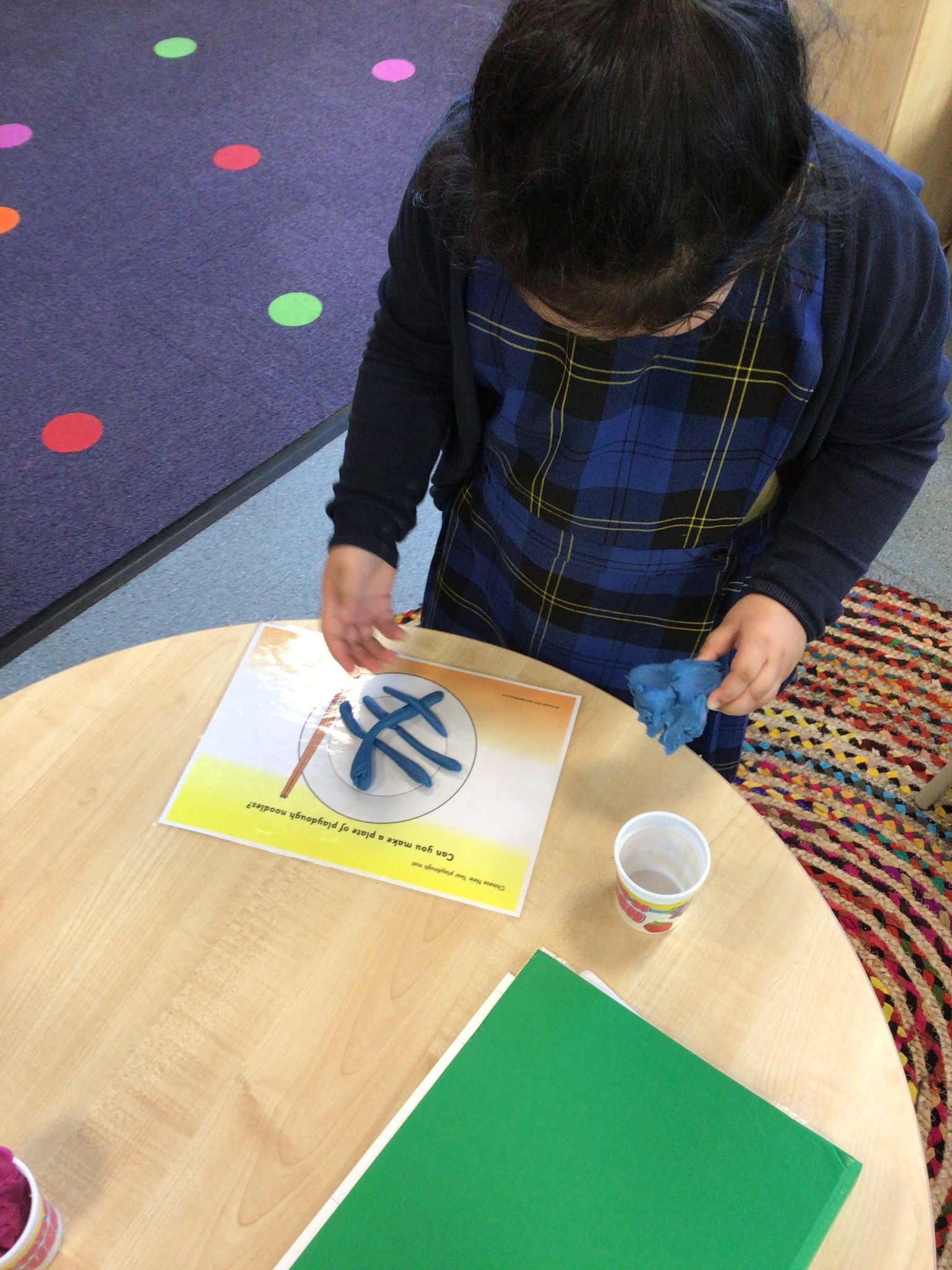
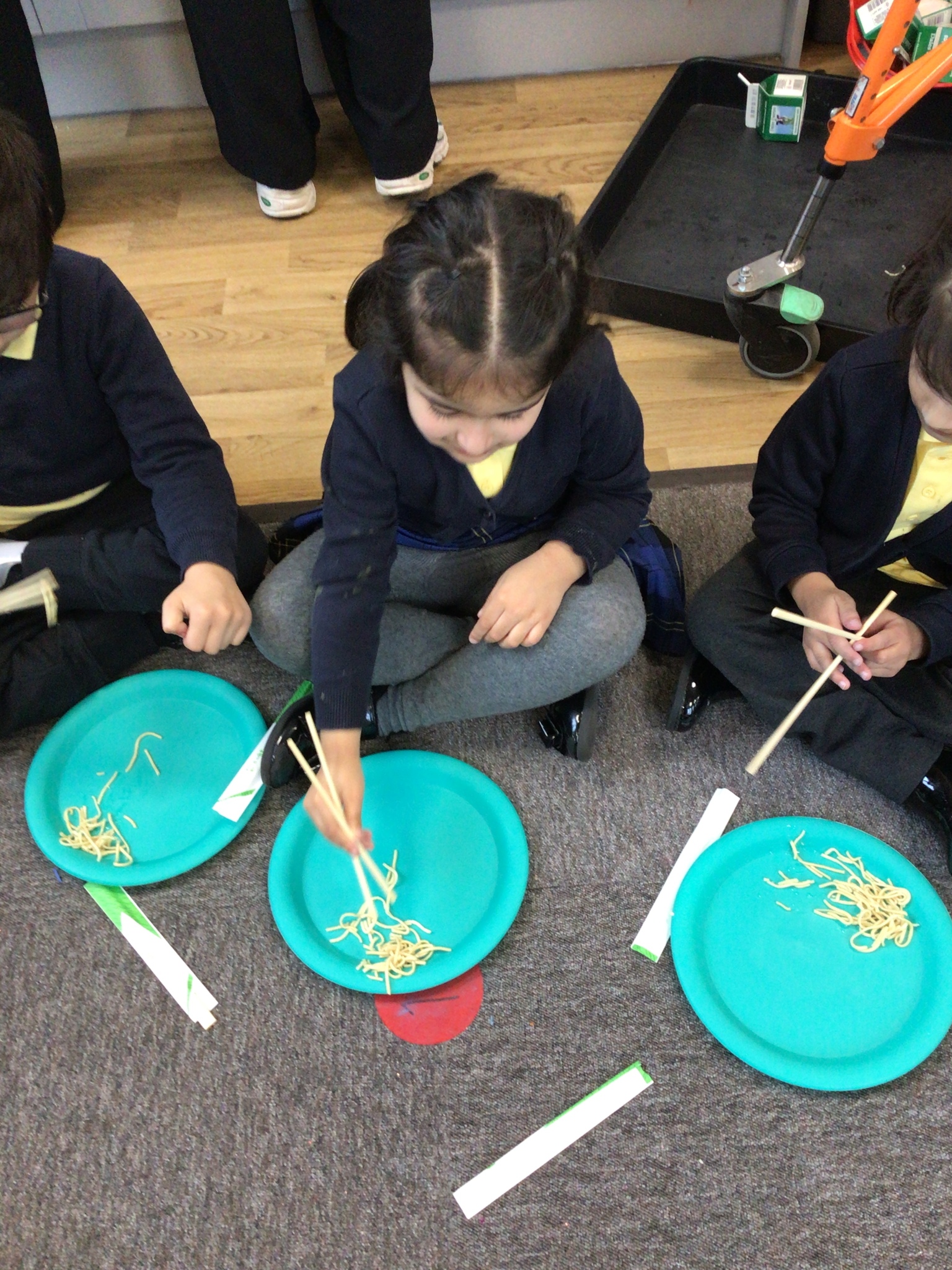
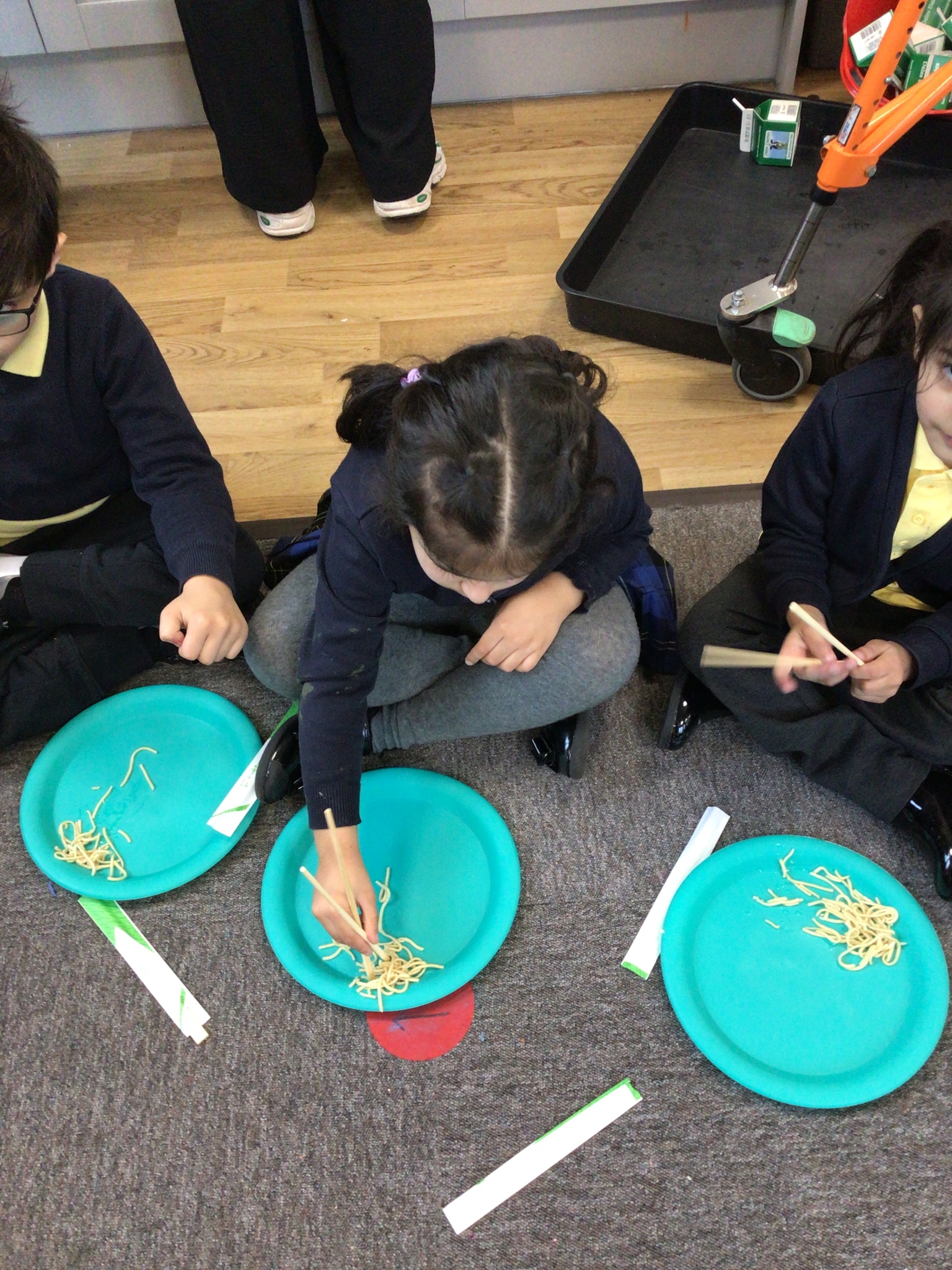
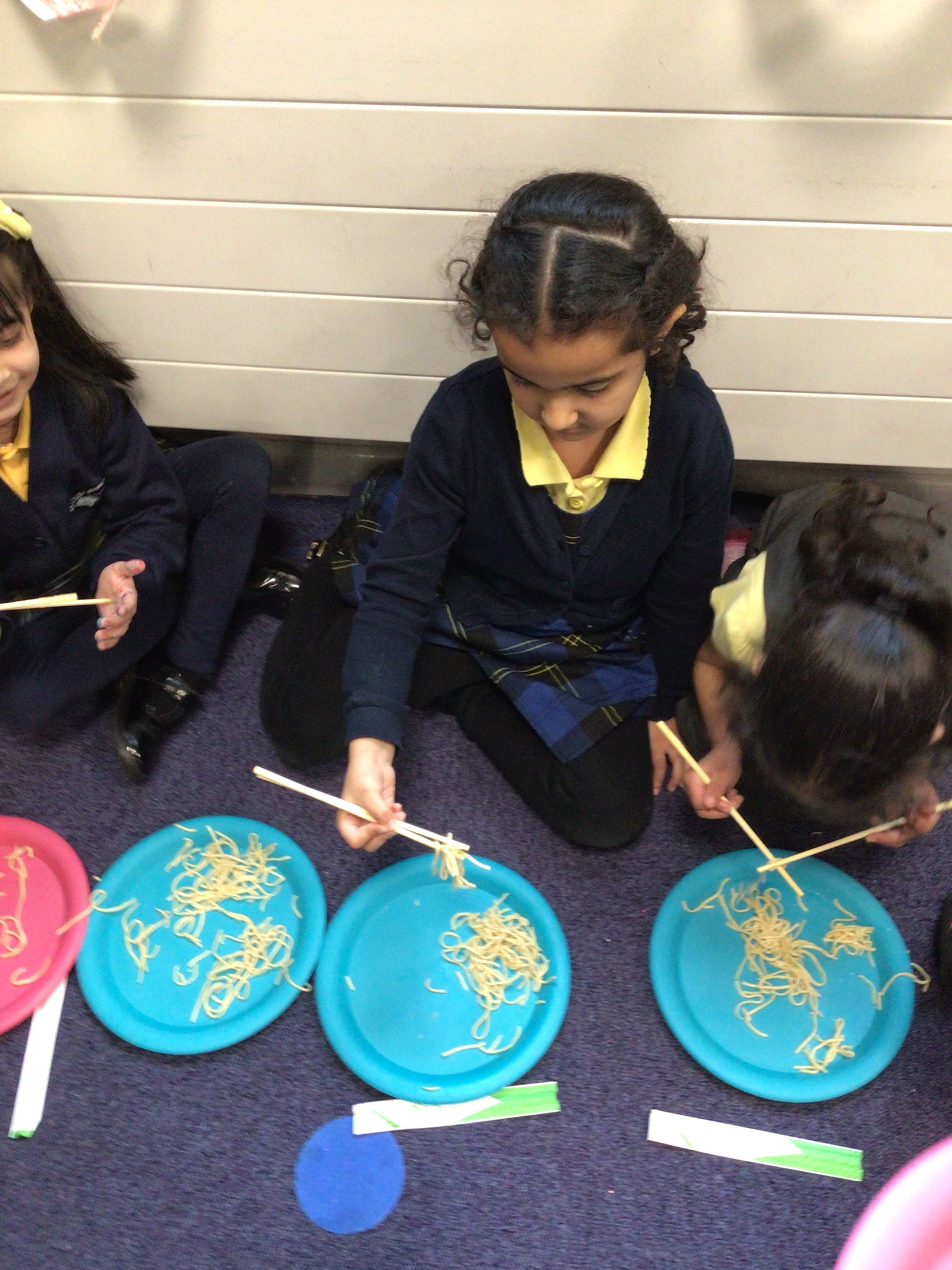
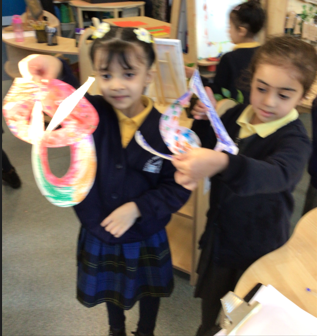




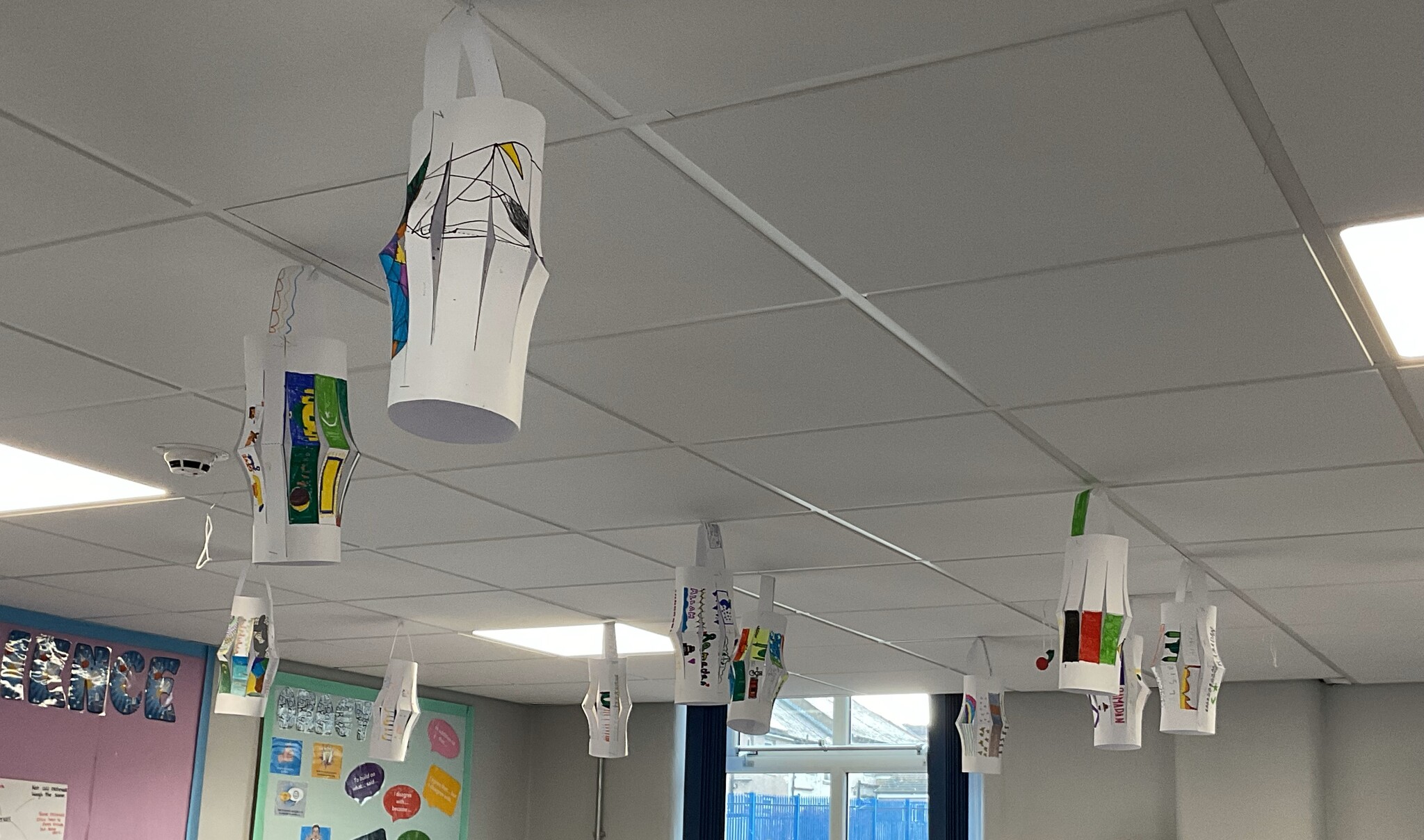



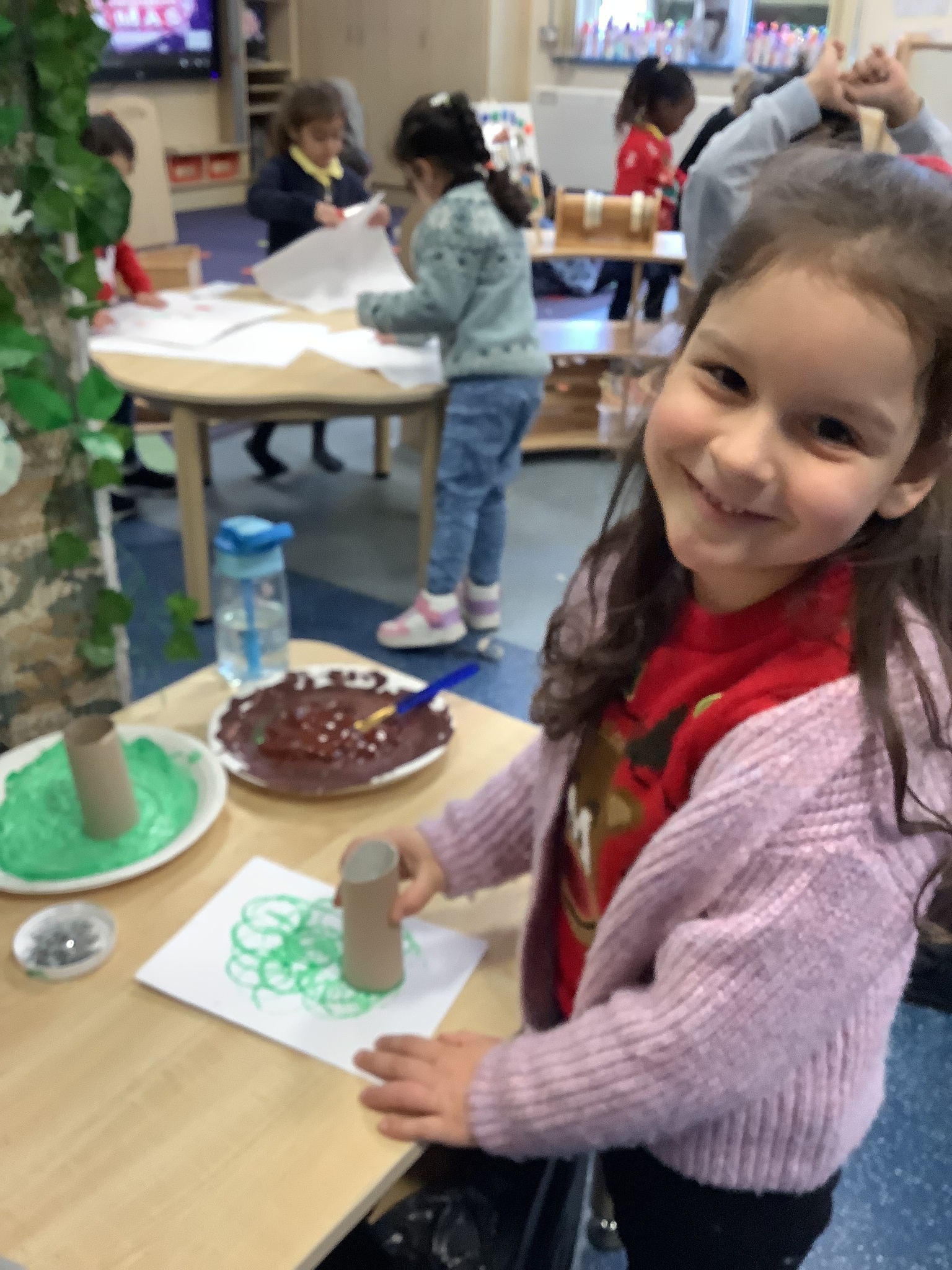
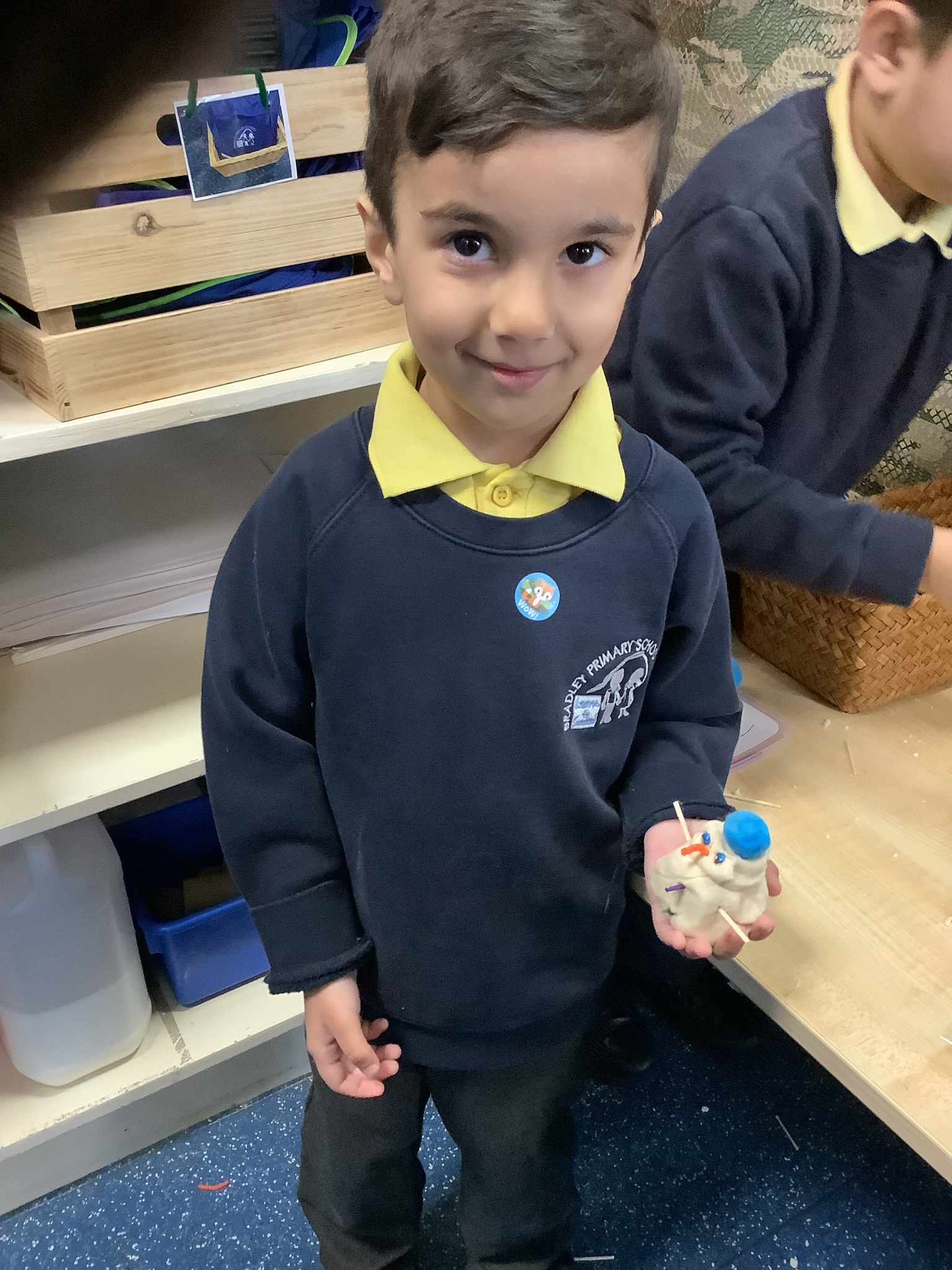
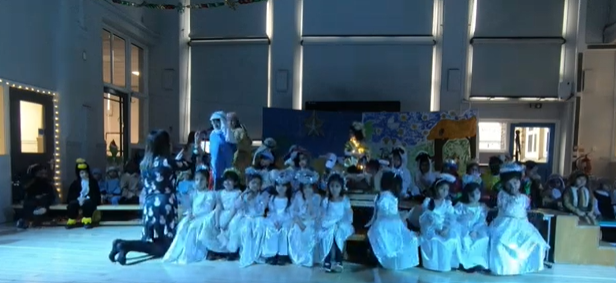


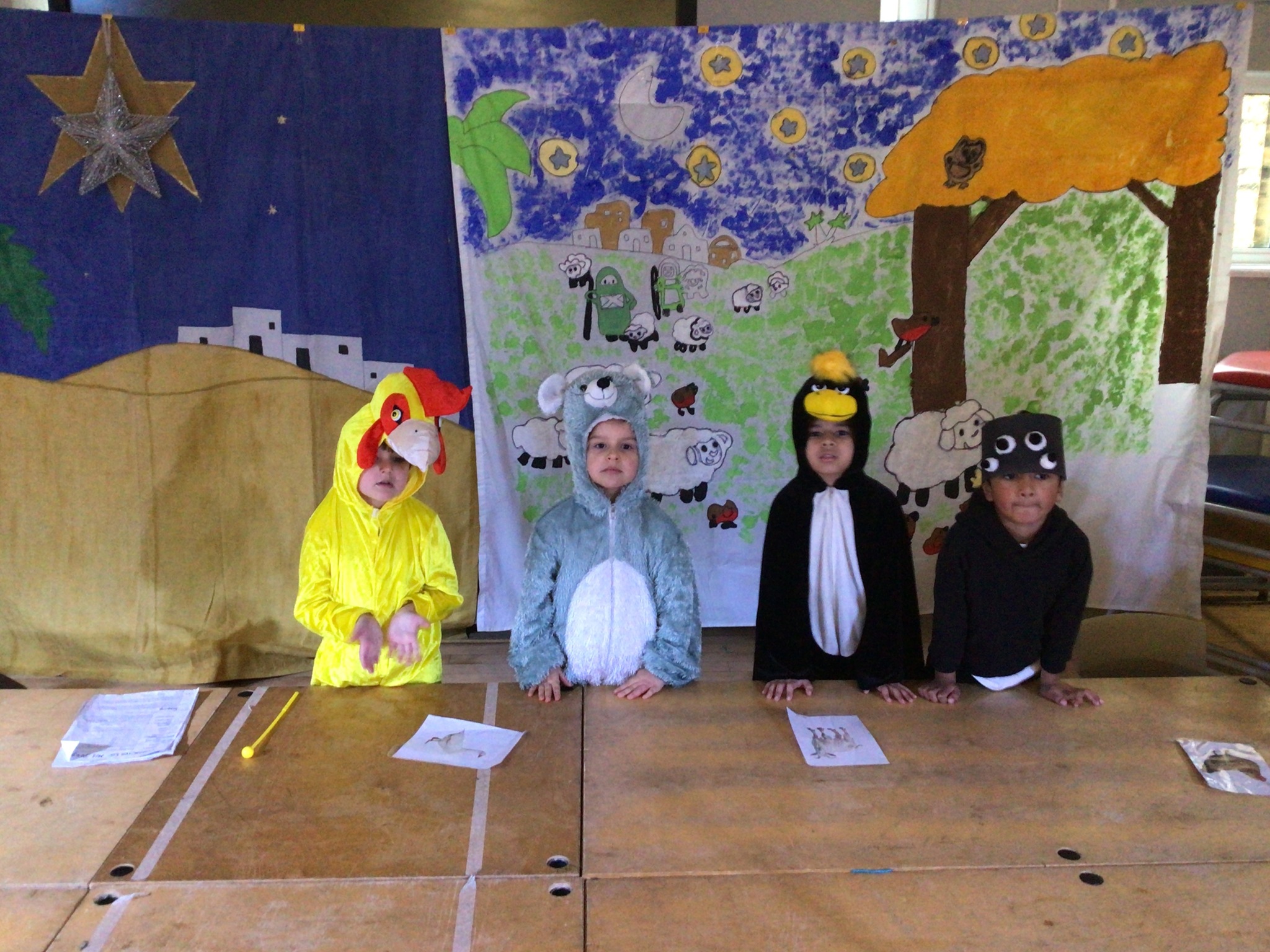
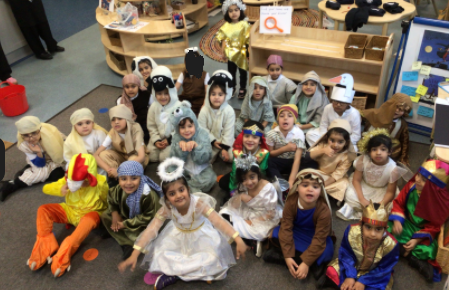

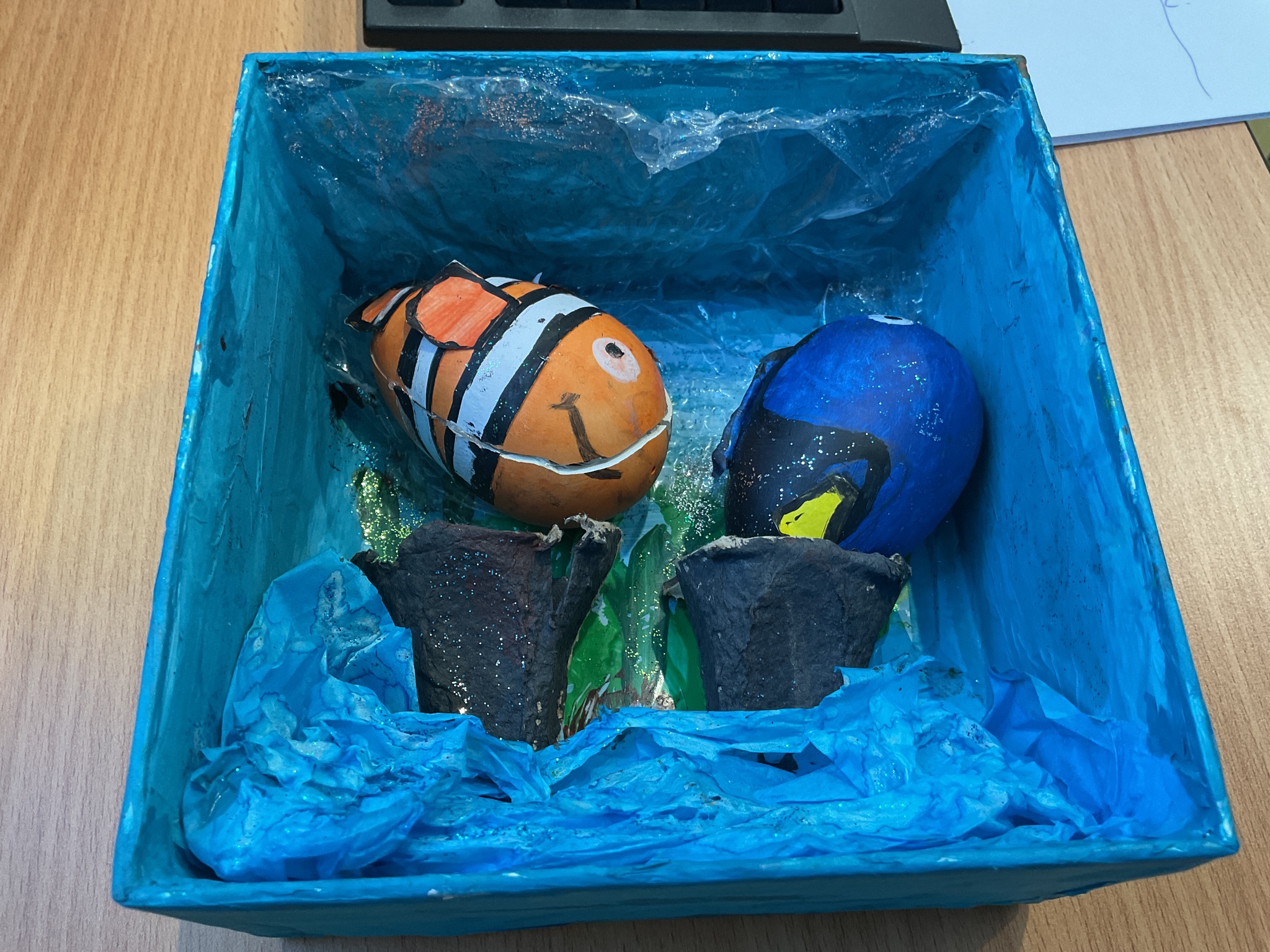
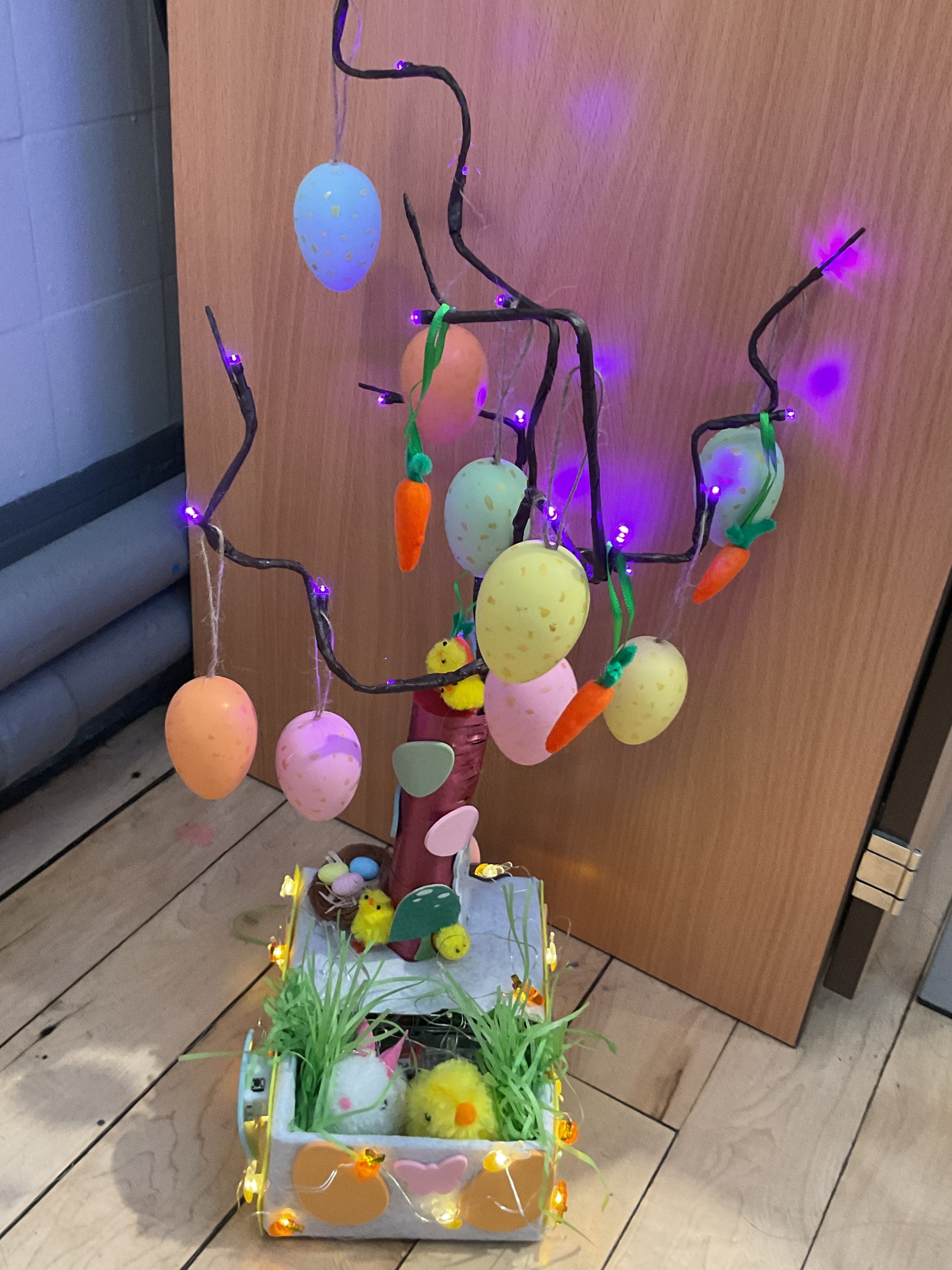
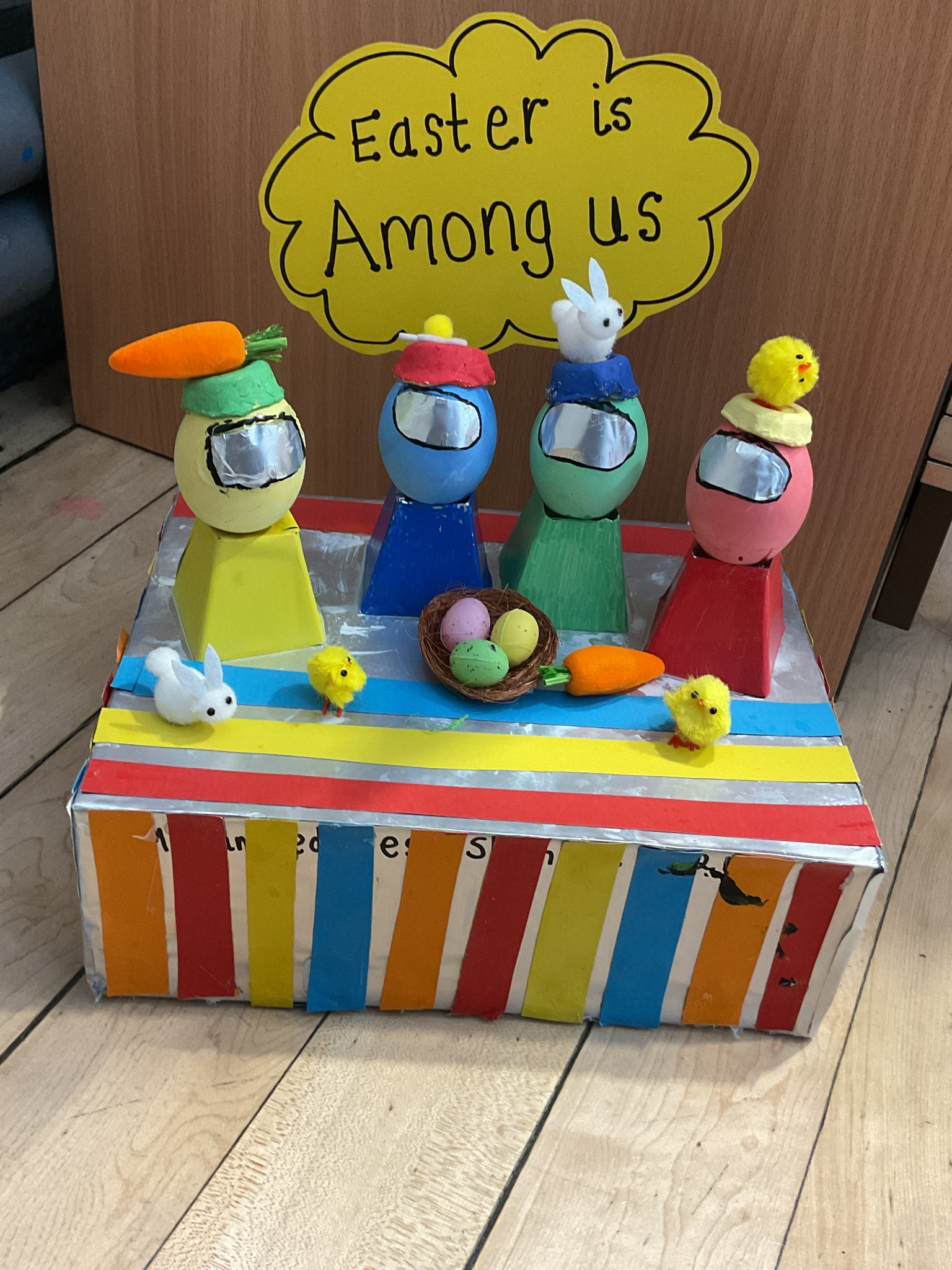
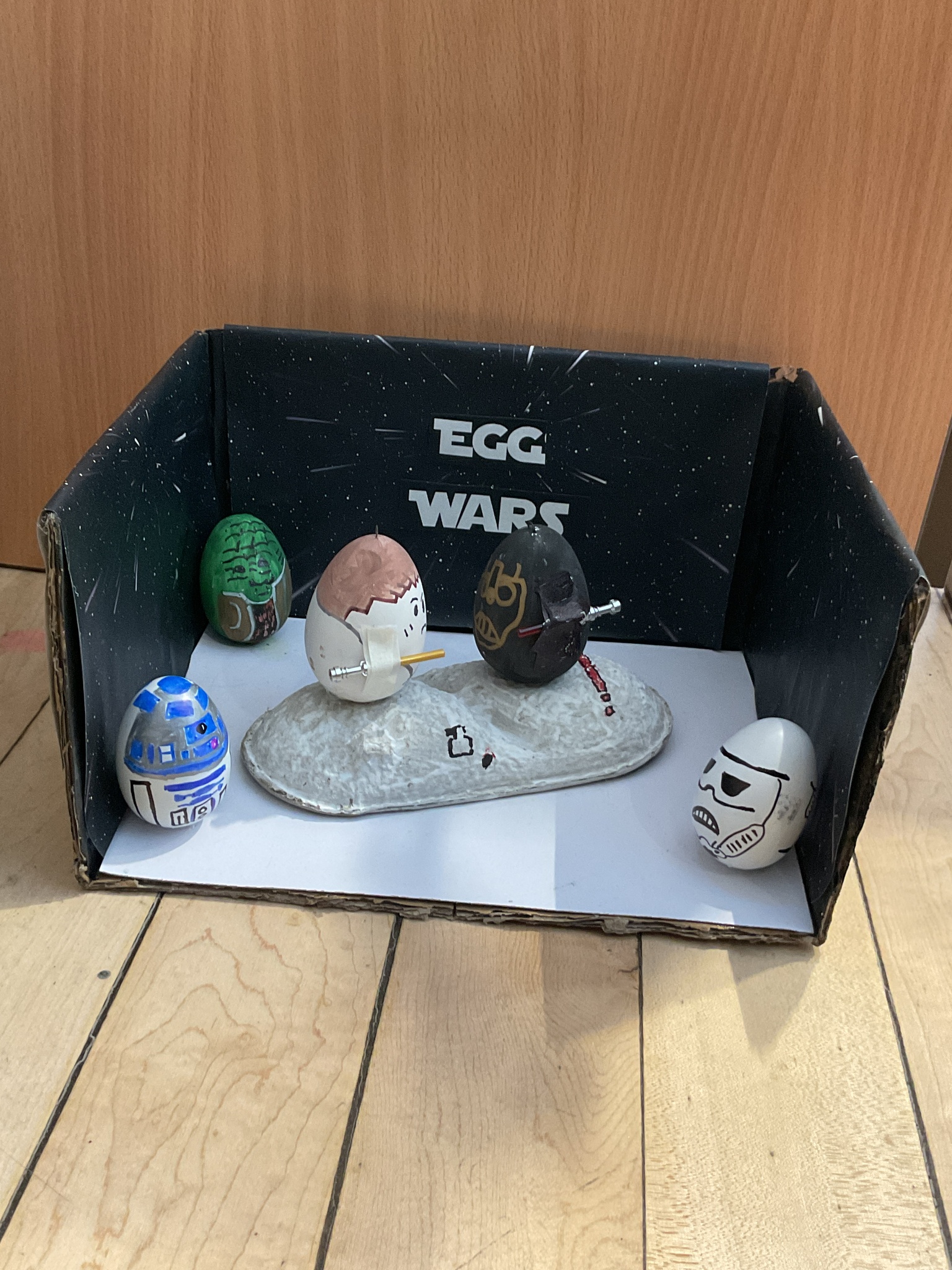
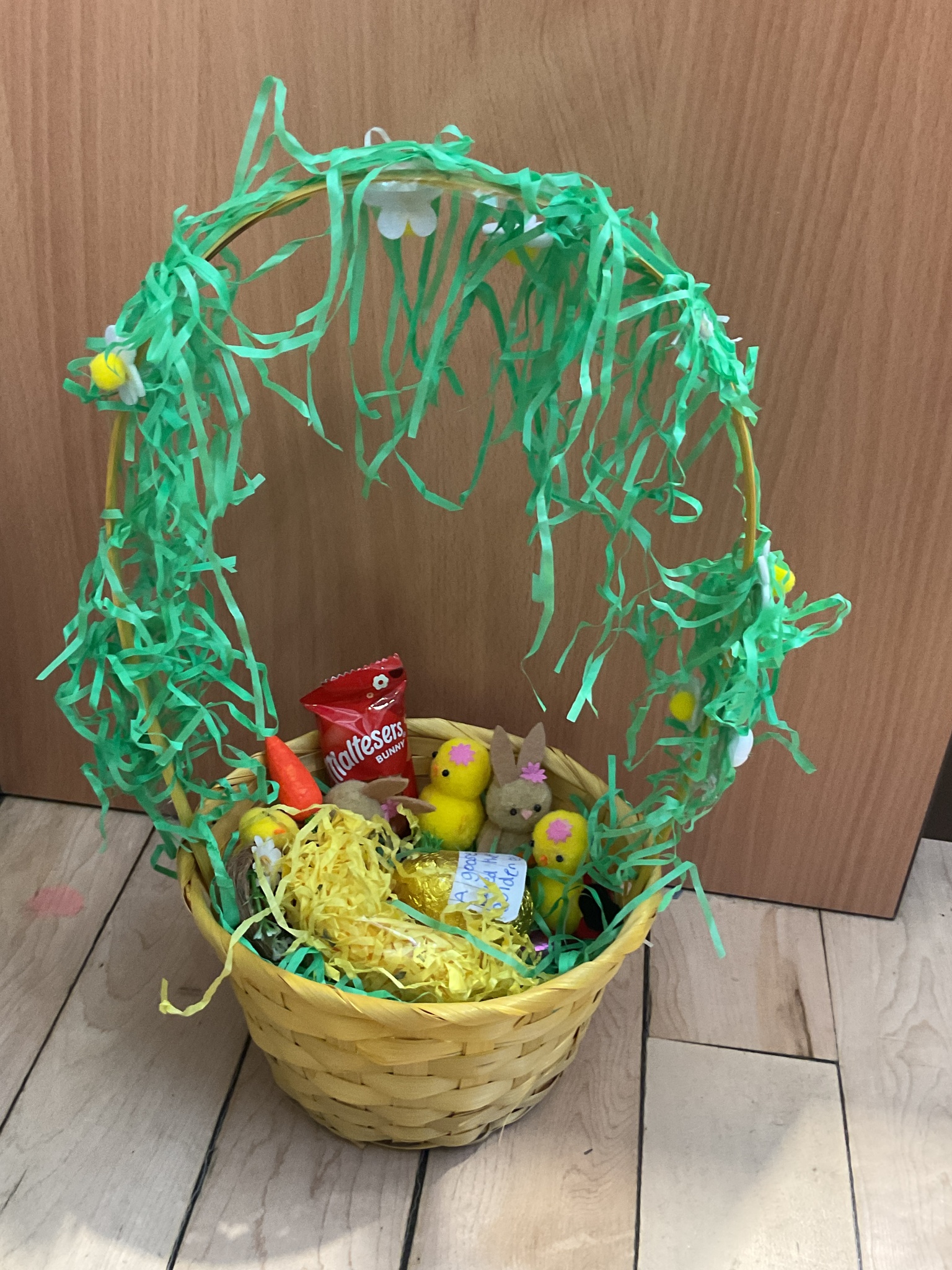
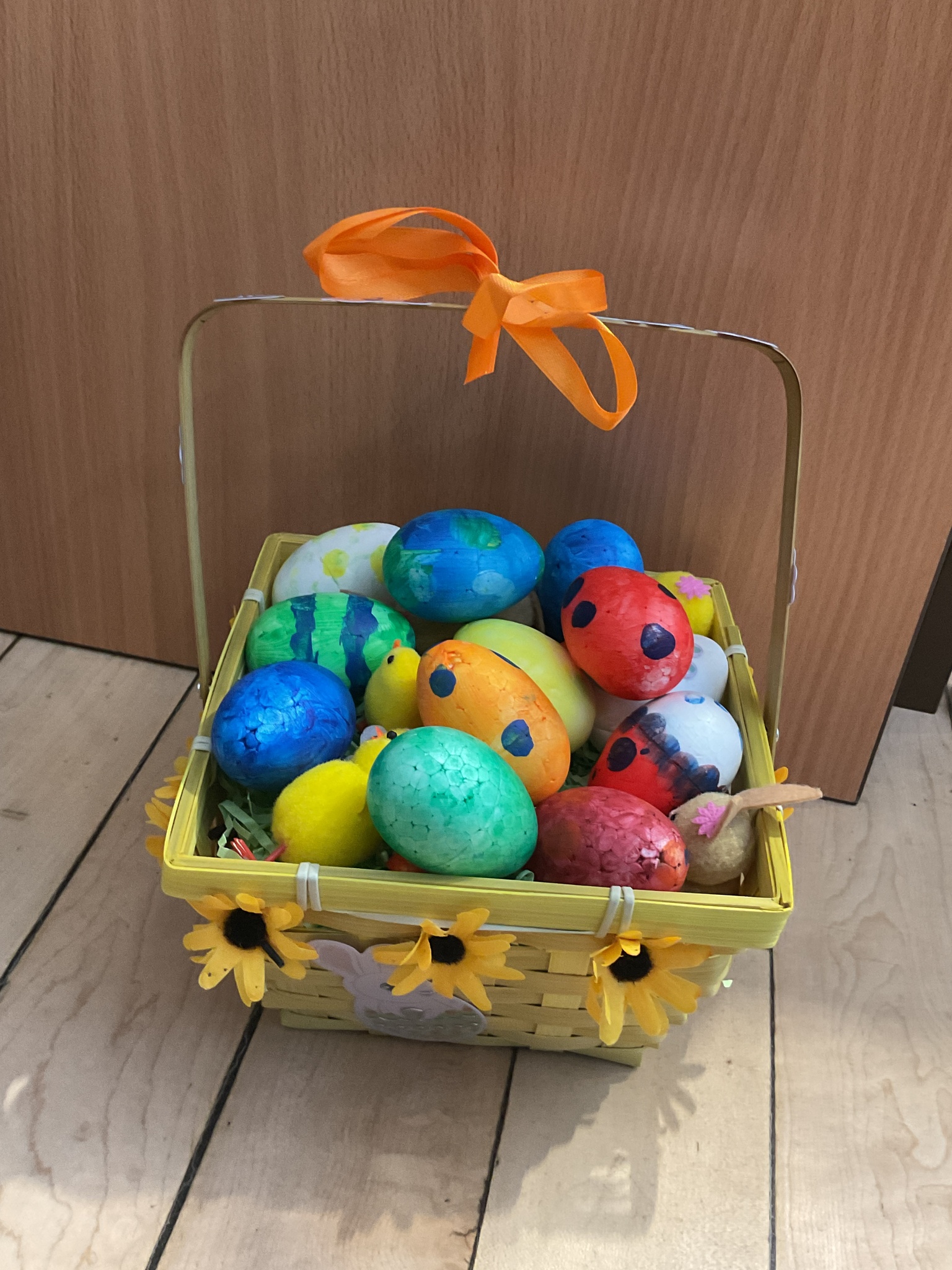
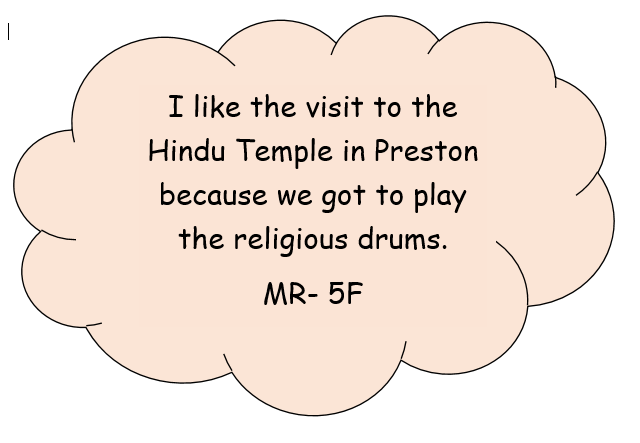
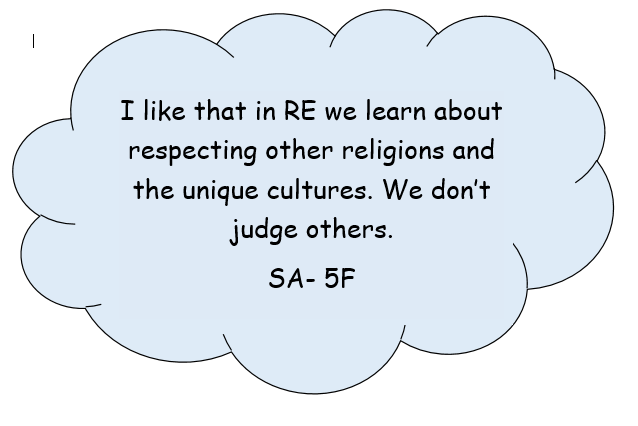
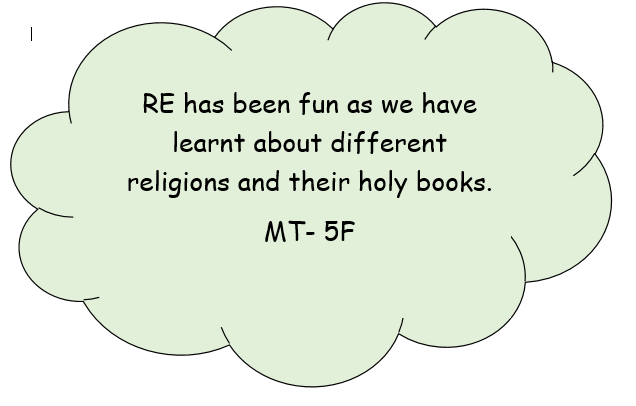
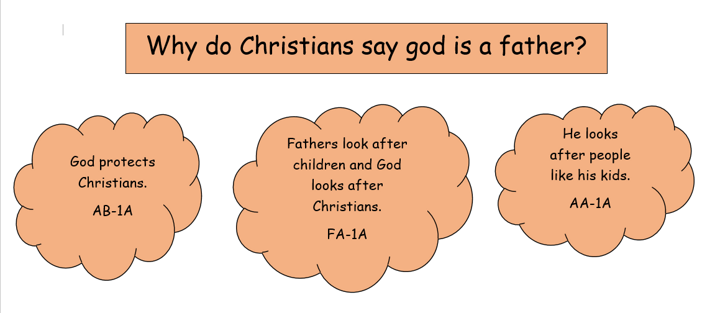
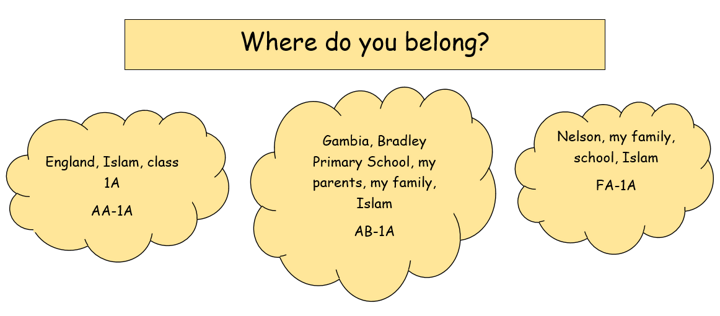
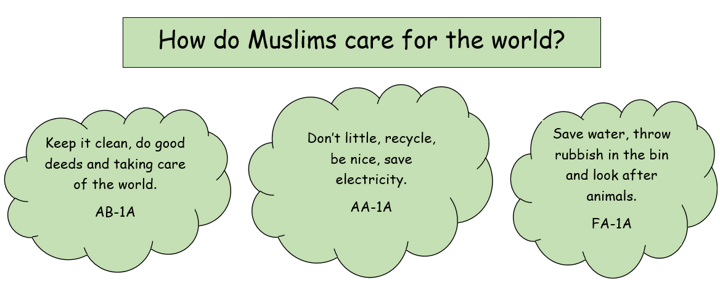
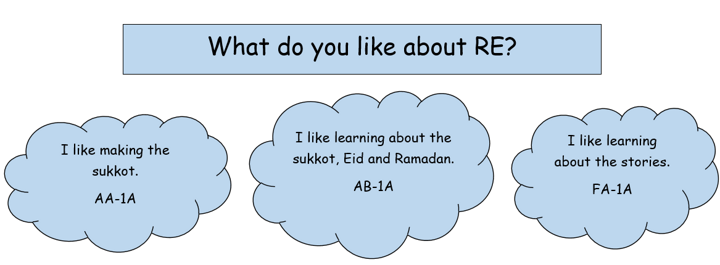
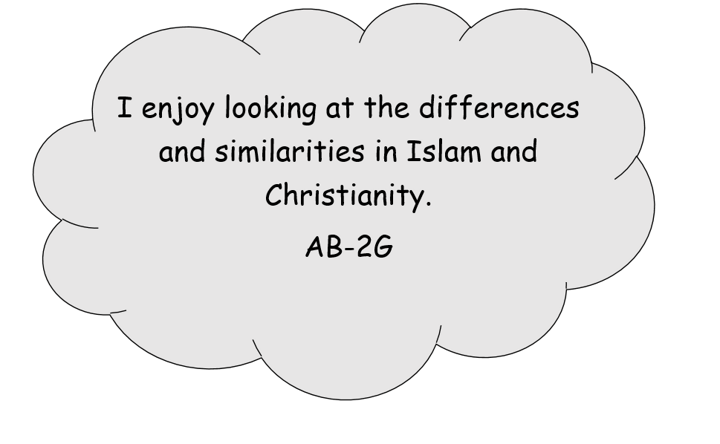
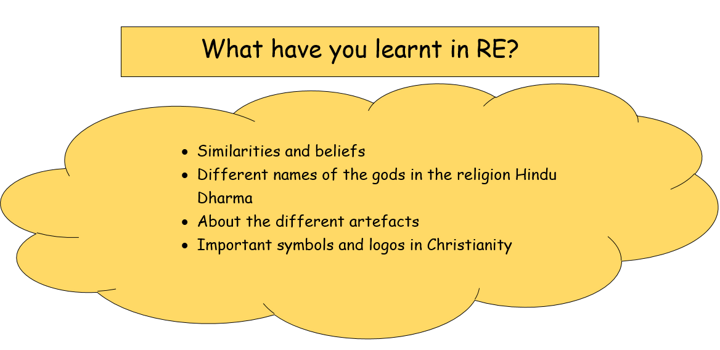



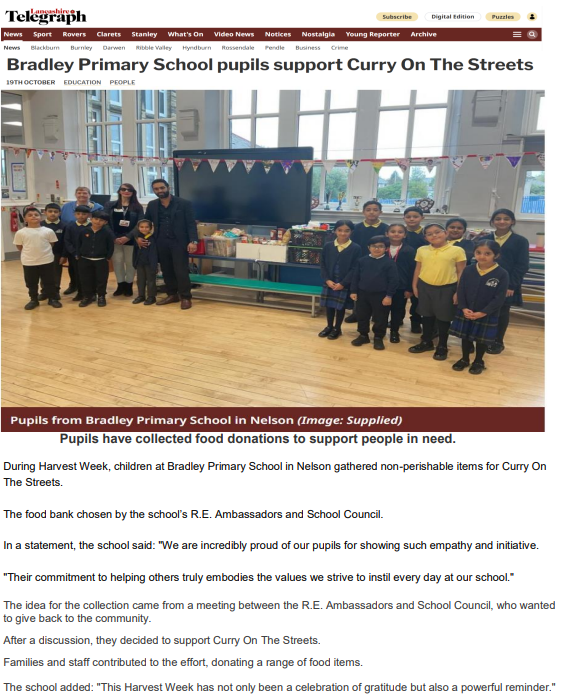




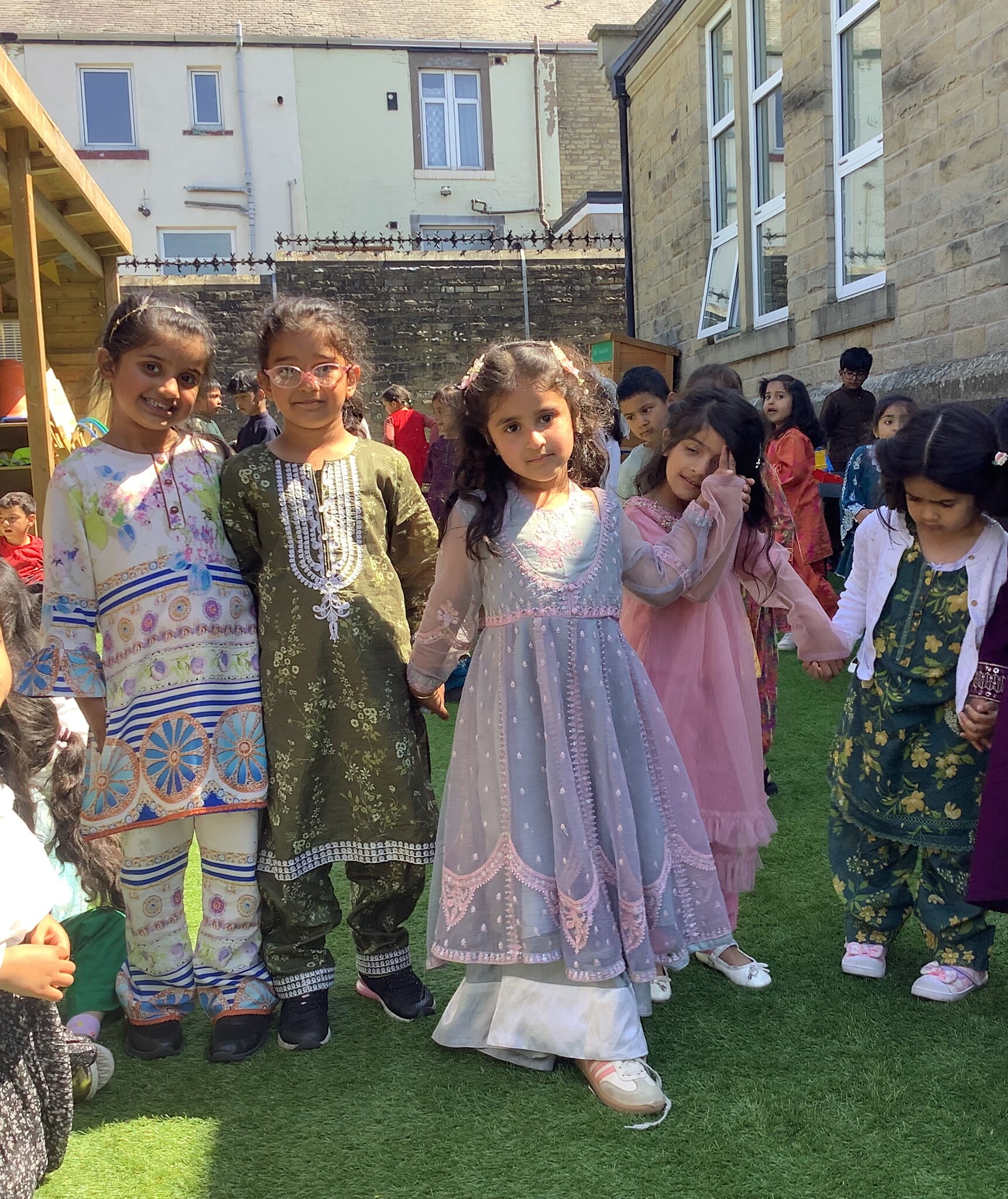
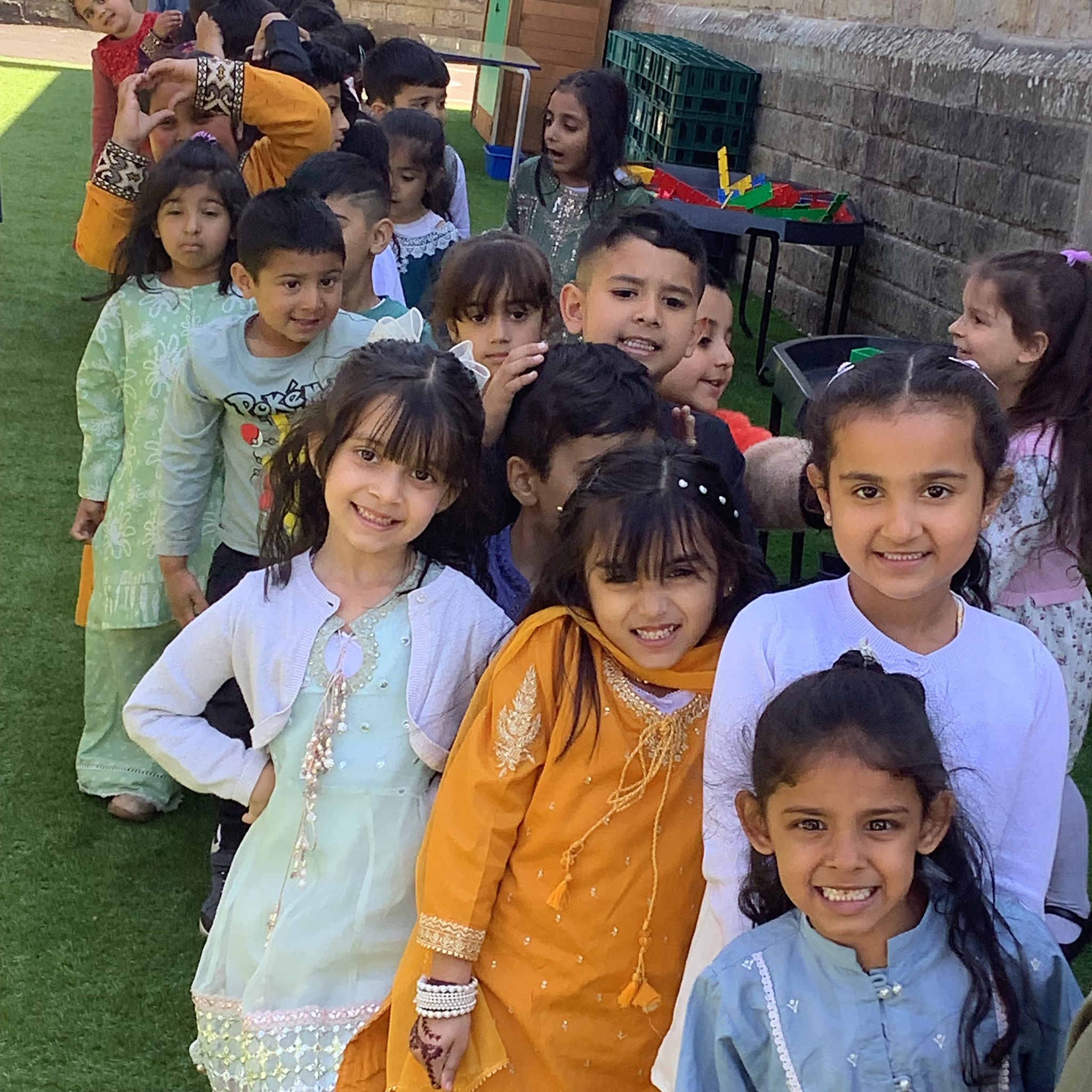
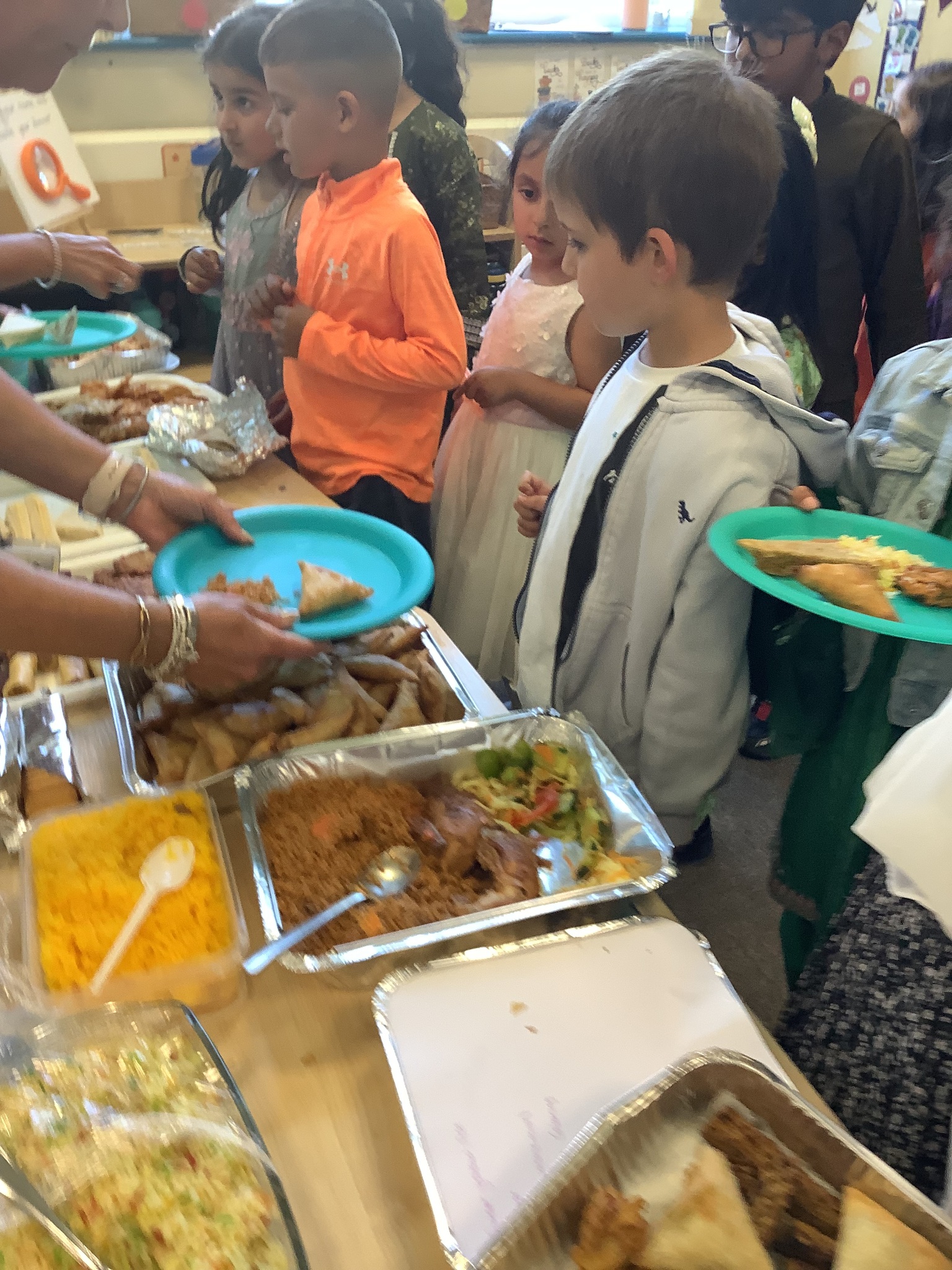
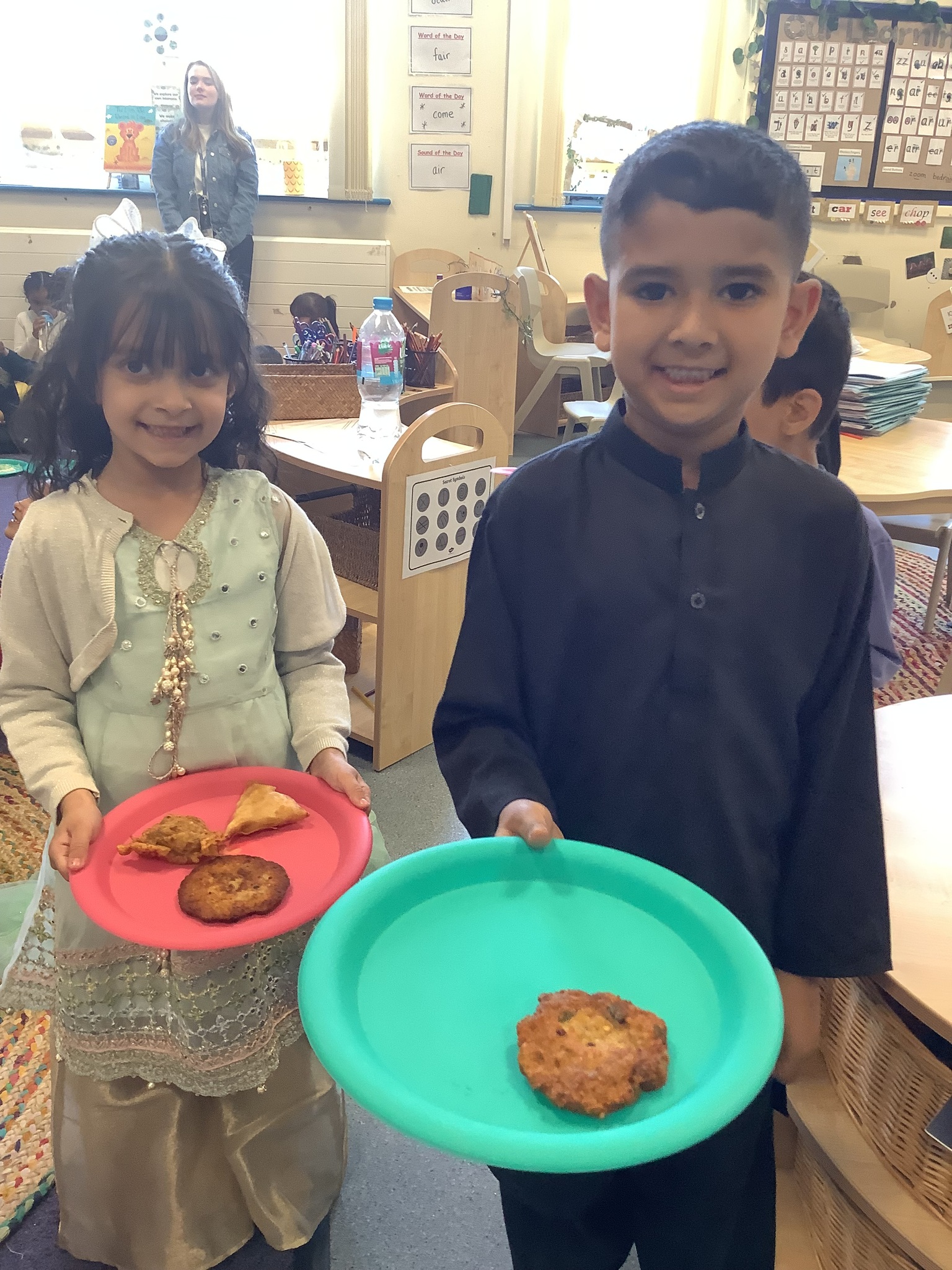
.JPG)
